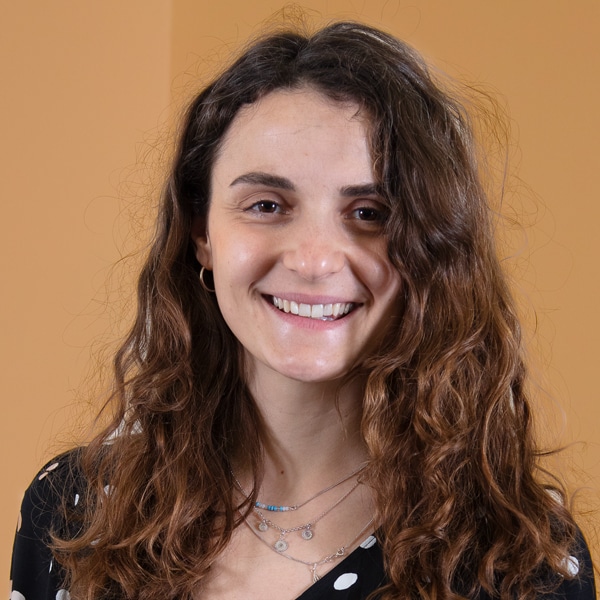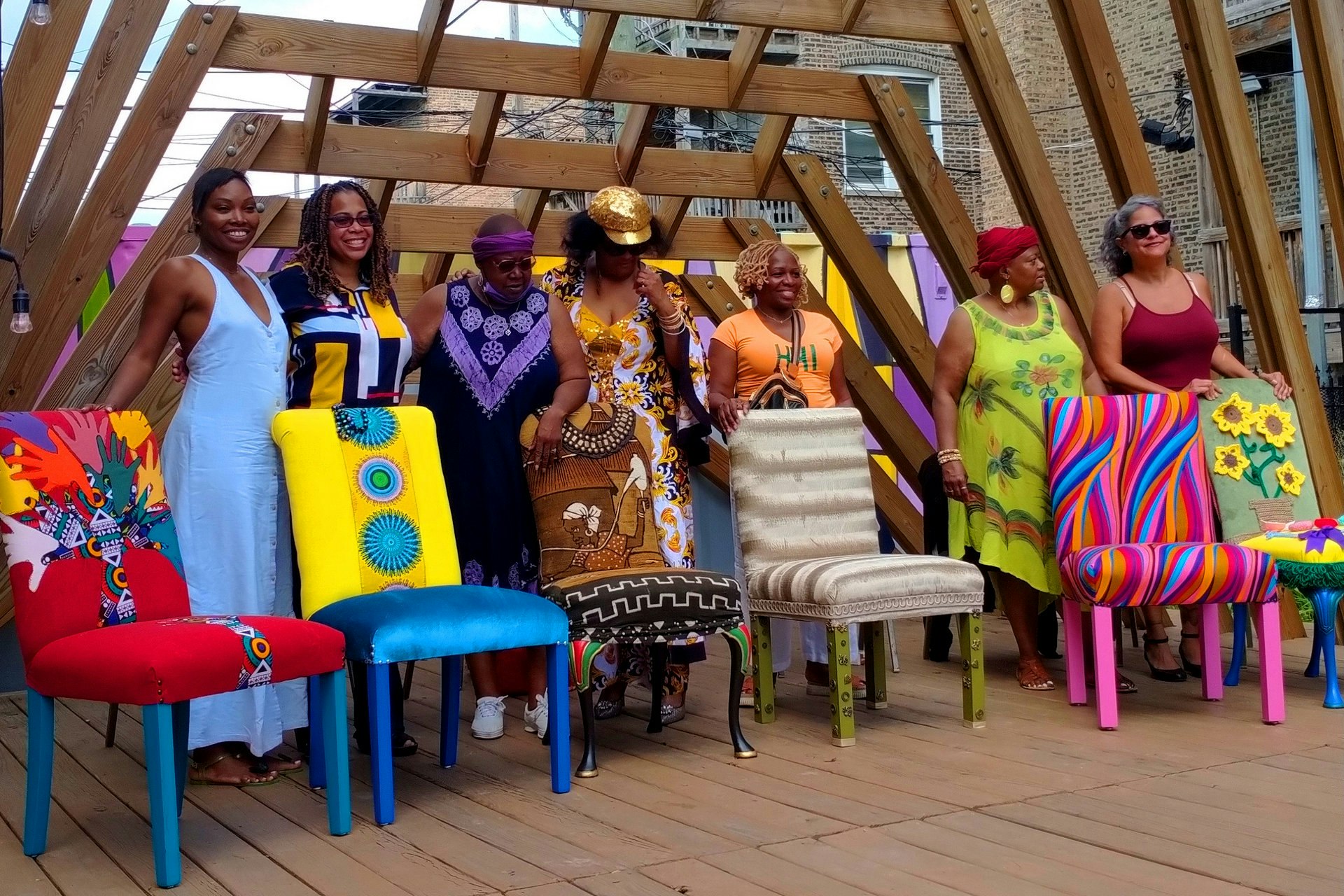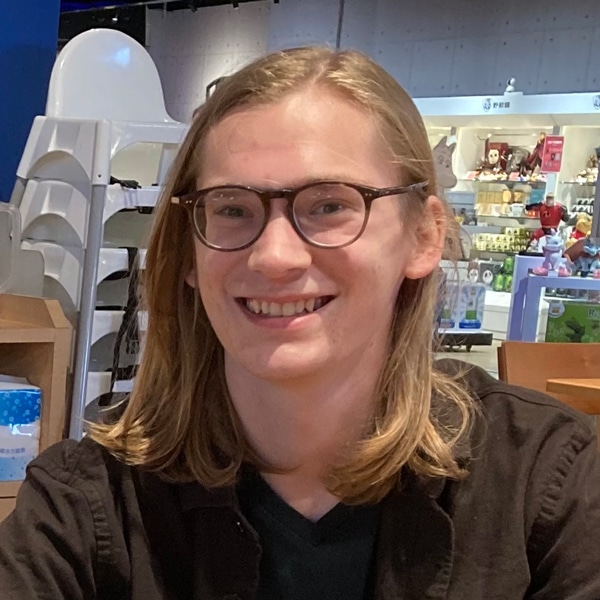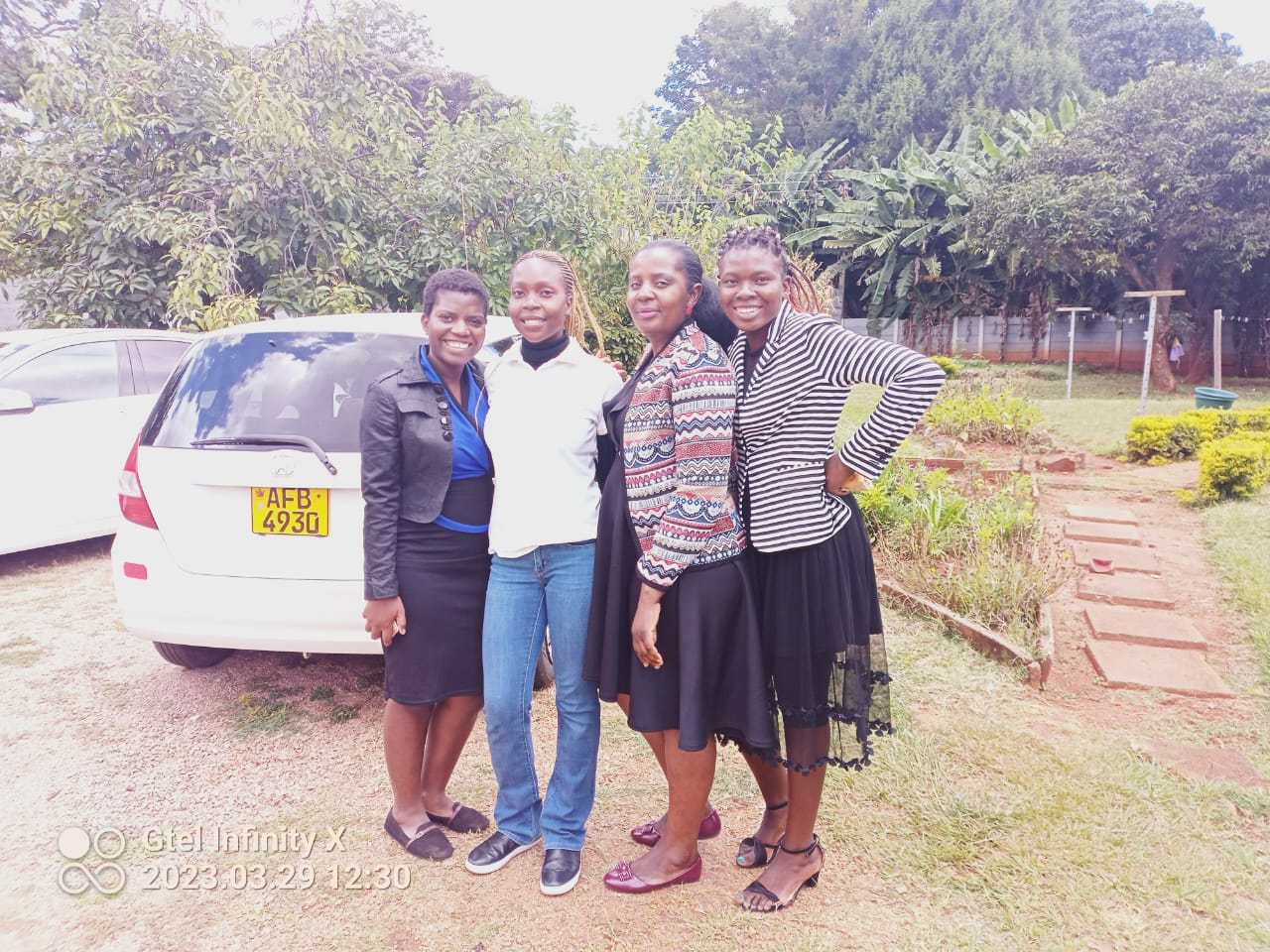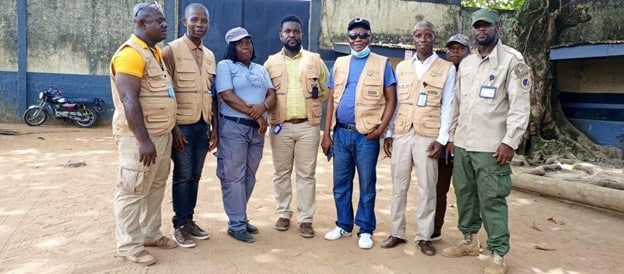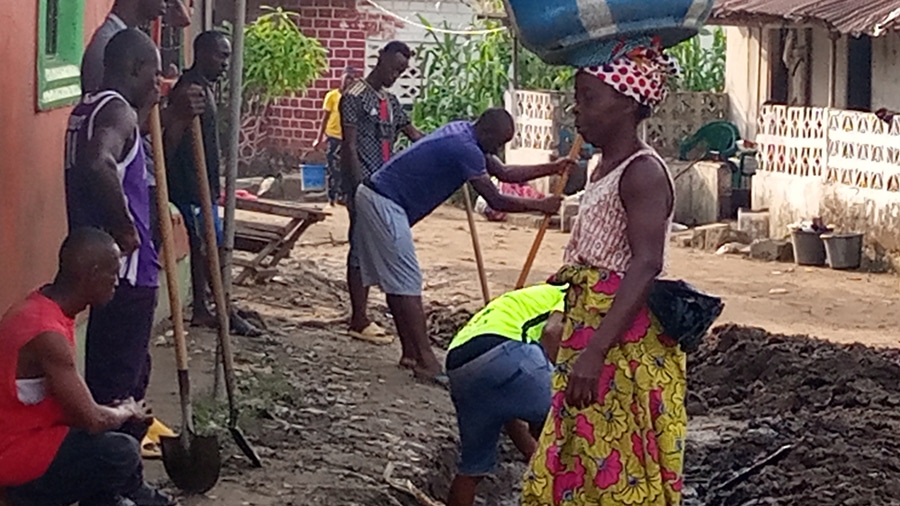Justice for Two Boys Trafficked into Domestic and Commercial Servitude in Liberia
This piece explores the disturbing experience of two children in Liberia who were trafficked into domestic and commercial servitude. With the support of staff from the Citizens Bureau for Development and Productivity (where Fellow John Kamma is Founding CEO) and local community residents, the two children were rescued, supported and reunited with their families. The following article exemplifies the work done by Citizens Bureau for Development and Productivity and our mission of supporting justice and dispute resolution. To learn more about the work of the organization, visit our Facebook page.
------------------
How Two Boys Were Trafficked in Liberia
In a telephone conversation with her business acquaintance, Madam Tete Dole, Cynthia Wilson (a purported businesswomen) requested the help of two boys who she wanted to live with her to carry out domestic work. In exchange, she would take responsibility of their care, including their schooling. Acting upon the conversation, Madam Teta Dole went to Bong County (a region in the North-East of Liberia, a few hours from the capital Monrovia) and with deceit convinced the biological parents to allow the children to leave with her, promising them that the children would have better living conditions, including schooling, and they would be under her watchful eyes in Monrovia. She did not inform the parents that she was acting on behalf of Cynthia Wilson, who would be using the children for domestic and commercial purposes. Madam Tete Dole delivered the children to Cynthia Wilson in January 2022. From that day, the children were living with Madam Wilson without going to school, and instead had their time dedicated to selling and domestic work.
Community Intervention to Prevent Trafficking
Following a whole day of work by the children, on the evening of May 22, 2024 Cynthia Wilson ordered one of them – aged 11 – to take off his clothes before flogging him with a rattan with severe intensity, causing bruises and defecation. The child escaped from her and went into hiding behind a neighbour’s bathroom, as he did not know of anyone with whom he could seek refuge, knowing no one else in the community that may stand up for him. Whilst in hiding, a neighbour, Mr. Anthony Wesseh, noticed the child and brought him to the home of Mr. Rockson Wollor Sr, who works for the Citizens Bureau for Development and Productivity as Head Mediator for the Logan Town Community Justice Teams. Upon seeing the condition of the boy, some women within the community became extremely upset and disturbed and demanded justice for him. Mr. Rockson Wollor Sr and five other ladies took the child to the police station in Logan Town and Cynthia Wilson was arrested.

Cynthia Wilson is feared by many residents because she possesses economic power. At the police station, Madam Wilson informed the police that she flogged the kid for toileting in the shop and that it was an act of witchcraft and she acted to get the witch out of him. The child, for his part, admitted to this but stated it was to avoid leaving the shop unsupervised. Cynthia was placed behind bars in a police cell and was later taken to court where she was found guilty and remanded at the Monrovia Central Prison. Cynthia was charged for Child Trafficking, Child Labour and Domestic Violence. The child was taken to a medical clinic by the Citizens Bureau along with community members who voluntarily gave cash amounting to $3,800LD ($20US), for medical support and feeding while undergoing treatment at the home of the head mediator who is also a member of the community.
After many efforts, the two children were eventually reunited with their family members who came from Bong County; their families could not hold back their emotions and were crying upon seeing the children and hearing of the abuse imposed on them by a woman they had never known or met. And that this had been going on since January 2022 without their knowledge.
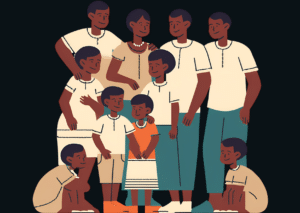
However, the families of the children were thankful enough that humanity provoked the kind and generous intervention of the community making it possible to reunite with their kids and to uncover all that they have gone through in the hands of Madam Wilson. The parents of the kids hailed from Bong County in a village called Bolee and lived there more than 50 years. In conclusion, the family of both kids expressed gratitude to the Citizens Bureau for Development and Productivity and the Jacket Community for standing up for their children against injustice and to finally give them justice and to reunite the family. That is how these children were rescued from forced labour and domestic violence.
Organizing for Reproductive Rights and Social Justice
Patricia Novick, 2023 Goldin Global Fellow, from Chicago, USA, has an extensive career in civil society and supporting human rights with a deep commitment to social justice, positive social change, and community building.
Patricia’s long career in social justice began in the 1960s when she worked directly with Martin Luther King Jr., taught the first course on women’s studies at a university in Chicago, was arrested more than 25 times for civil rights protests, and was a member of the Jane Collective, which provided abortion services. Having a rich background and engagement with the community, Patricia, who has doctorate degrees in Clinical Psychology and Ministry, joined the 2023 Goldin Global Fellowship to foster collaboration between activists and pave the way for communities to thrive.
Her efforts include supporting many Fellows to receive opportunities to participate in coaching and training programs at no cost that would otherwise have cost more than $3,000 and collaborating with the Midwest Academy to provide additional training in community organizing, specially designed for Goldin Fellows, at no cost. She values the relationships formed during the Fellowship and is glad to have enhanced her own network of international social change leaders.
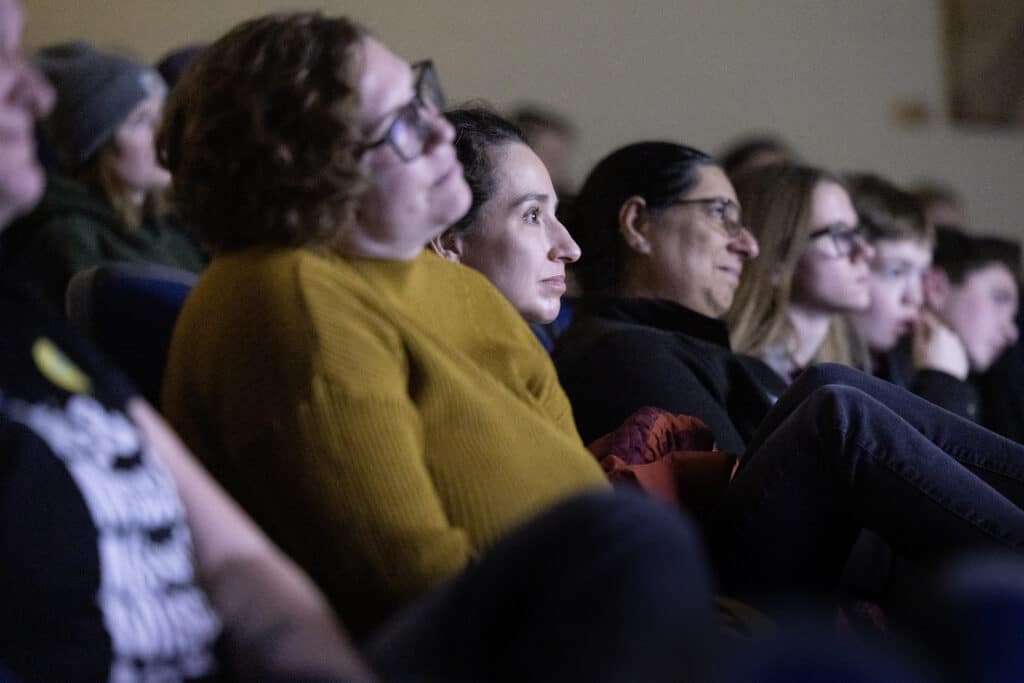
Organizing Around Reproductive Rights with the Goldin Global Fellowship
Patricia shared how she benefited from the Goldin Fellowship and the weekly roundtables that brought together Fellows as grassroots leaders from around the world to work together: “I did the Fellowship to support international social change leaders: this is why I wanted to be a Goldin Fellow, to interact with and support the other Fellows.”
According to her, the quality of the relationships created between Fellows will long remain: “What I got from the Goldin Global Fellowship is the quality of the relationships with those I met, and I will maintain these connections over time. I was a bit older than the other Fellows; nevertheless, what they had to offer me was invaluable. I want to highlight that what was most valuable, in addition to the excellent training we received, was who I met and who I will continue to have in my life. I was very moved by the work that many of the Fellows are doing, and by who they are as people.”As part of the Fellowship, she hosted a series of events in Maine, to raise awareness and action for women’s reproductive rights. In addition to meeting in classrooms with students in gender and women’s studies, and having lunches with legislators and other influential leaders, she gave talks that were open to the public at five universities, with audiences of as many as 200 people per university.
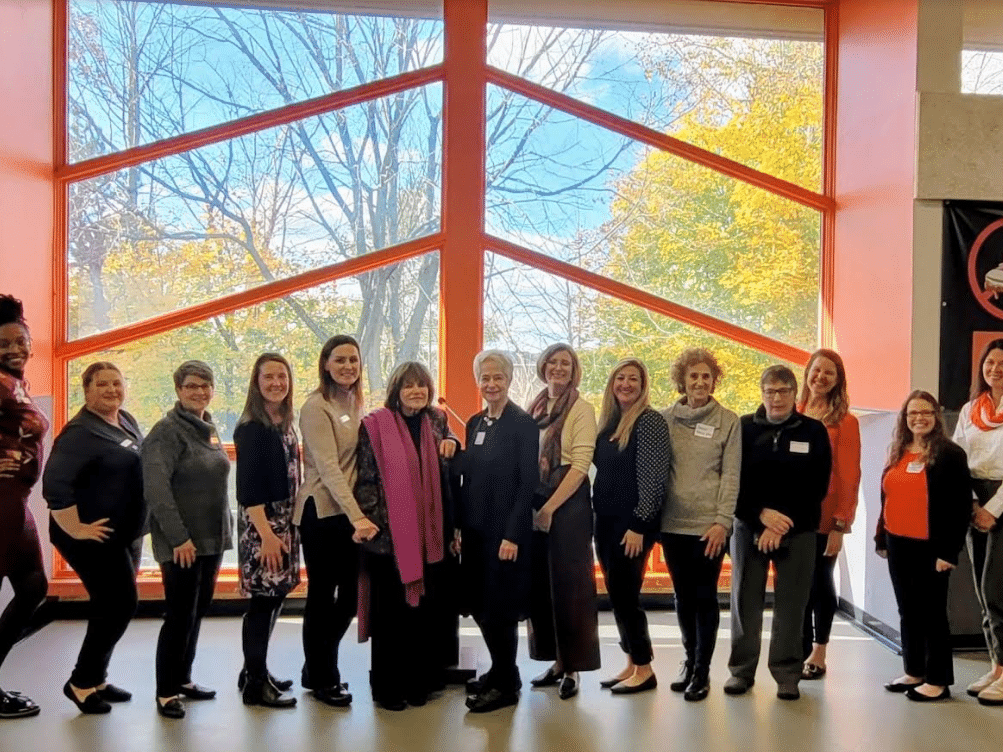
At the public gatherings, an award-winning documentary film about the Jane Collective was shown. Patricia comments on the importance of this documentary: “In this country, reproductive rights together with other issues, like climate change and gay rights, are an important cluster [...]. Hence, the purpose of my summit was to use the Janes film to bring together those organizations. In the lobby were representatives of all these organizations. The idea was to encourage participation and voting. The purpose of the summit was to bring together people who are committed to these issues, to have them sign up to volunteer to work on these issues in preparation for the national election.” She continues, “If we organize, we can change the world. So, I am calling upon you to volunteer on the issues that matter to you and all of our futures.”
In addition to Maine, she also participated in screenings of the documentary in Arizona, Indiana, Nevada, Wisconsin, and Georgia. She also arranged for the film to be available to all Goldin Global Fellows for viewing with groups in their communities, outside the USA, and hosting discussions afterward. She emphasizes the community support she received about the US screenings: “We got letters and emails, and the feedback was very positive.”
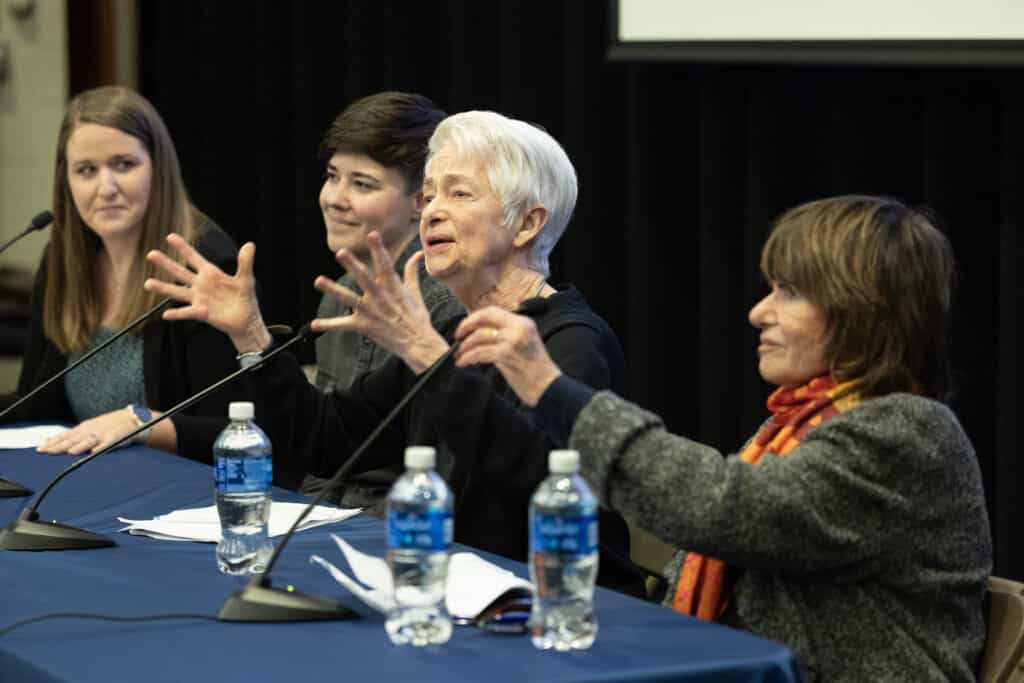
Patricia’s Contribution to the Community in Dealing with the Migration Crisis
An important way that she is helping her community is by giving her assistance in dealing with the migration crisis. She explains why this is important and timely: “My city, Chicago, is the most segregated in the country. It is a mosaic of communities that touch but do not integrate. Last year and this year, some US states sent more than 20,000 immigrants seeking asylum to Chicago. The large number of migrants suddenly coming to our city creates a disturbance in the systems of these close communities.”
Her work includes serving Latinos, organizing dinners to build better relationships among Latino and African-American communities, and organizing and co-leading a program to bring together African-American and Latino leaders to create joint civic projects. As an ordained minister, she also works through churches. “The goal through the church is to get people placed in other people’s homes and to provide resources like food and shelter, medical care, schooling for the kids, and all the basic resources,” she said.
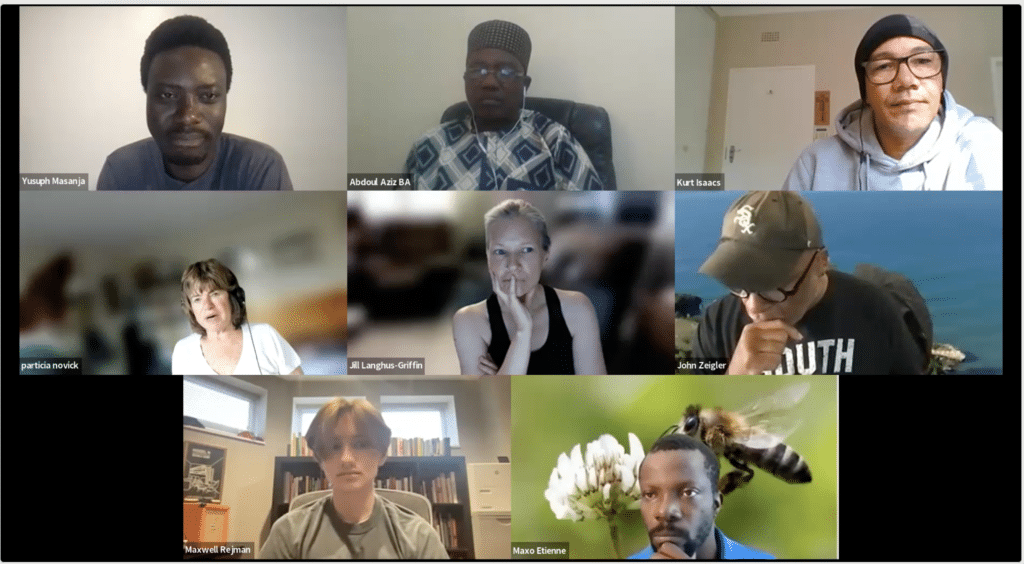
She adds that what’s currently happening in Chicago is that the institutional response to the migration crisis is not always the most appropriate: “They [responsible institutions] spent all this money to build a tent camp, and the environment is not acceptable, nor is the quality of the ground. Currently, we don’t have enough places for the asylum seekers to live, so many of them are living in police stations and tents.” Patricia aims to change this for the better, while tirelessly putting her effort into the betterment of the community in Chicago through social change and organizing.
You can watch Patricia in the HBO documentary, “The Janes”.
Chairs as Activist Art
Throughout the history of the Goldin Institute, many Peace Fellows have used art as a way to bring communities together, reflect, and create. Jamika Smith, a 2022 Chicago Peace Fellow and the founder of Teena’s Legacy, uses a unique medium to promote these kinds of practices, teaching the art of upholstery as a tool for healing and community activism. Recently, Jamika has worked on two substantial projects, collaborating with community members from the Black and Latino community to use re-upholstery as a tool to explore their history and facilitate healing.
Chairs that Explore Black History: Blooming Out of Trauma
For Black History Month, Teena’s Legacy hosted their very first art exhibit, “Blooming Out of Trauma: The Intersection of Upholstery and Activist Art.” The exhibit was hosted at the Marshall J. Gardner Center for the Arts in Gary, Indiana from February 2 through March 8. For this exhibit, Jamika worked collaboratively with community artists to create fourteen works that trace a peoples’ history from the African Empire and slave trade, through Jim Crow and Civil rights eras, to contemporary experiences. Speaking to the collaborative nature of the exhibit, Jamika stated: “I intentionally wanted this to be a collaborative project, so I [brought in] a couple of artists from Chicago, an artist from Hammond, Indiana, and a majority of artists from Gary.”
Blooming Out of Trauma aimed to capture both the struggles and achievements of African and Black History. Speaking to her inspiration for the exhibit, Jamika said: “A lot of my chairs, especially when I do my workshops, are more about purpose driven pieces, designed with intention. This exhibit is what that is, I intentionally designed an exhibit to tell the story of African and Black history using some authentic cloth from Ghana and Mali. The story starts from the birth of slavery in the 1400s all the way up to the present day. The name ‘Blooming out of Trauma’ captures that for well over 400 years there were traumas and struggles, yet there were also triumphs out of those.” Through working with African materials and reflecting on African and Black history, the artists who contributed to Blooming Out of Trauma created chairs that provide a space to process that history.
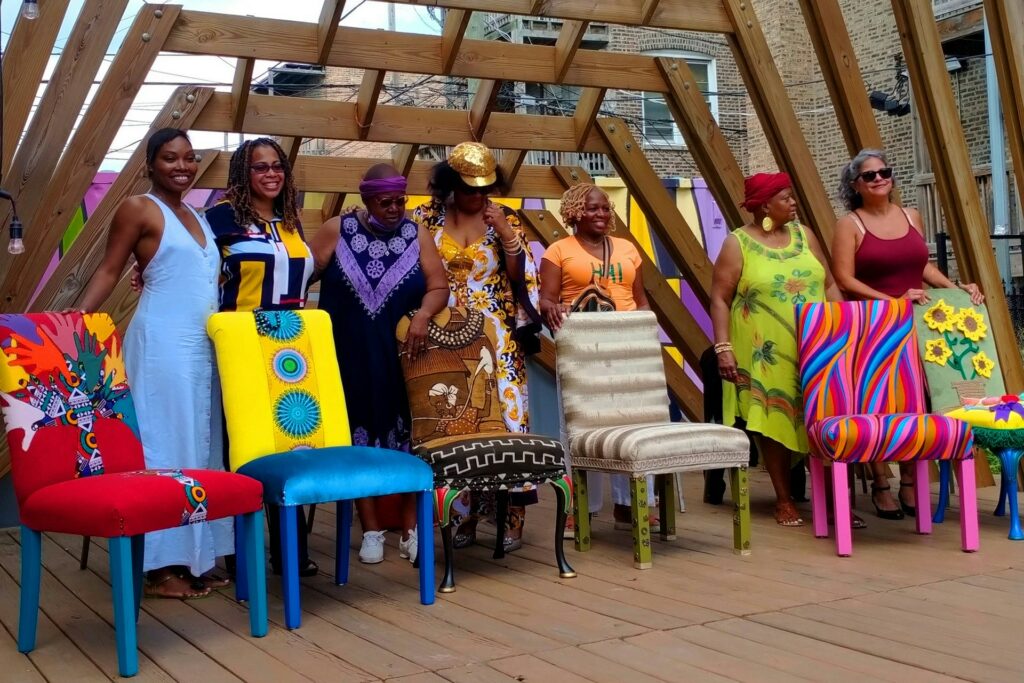
As Jamika and the other artists worked on chairs for Blooming Out of Trauma, they also processed their own personal histories. Jamika elaborates, “I learned more about my history through this project, especially the history that is not taught in schools or books. Even history that our ancestors or family members may have been uncomfortable or ashamed to tell. That history is hidden.” Continuing to reflect, Jamika stated that upholstery teaches: “First, to have patience to assess that there is trauma, and then second to identify and put a name to that trauma, and third, how do you compartmentalize or release that trauma; how do you put it in its proper place.” Through reflecting on personal histories and struggles, Blooming Out of Trauma seeks to allow a space for trauma to be processed.
The way Jamika approaches upholstery centers the experience of individuals and upholstery’s role in connecting groups of people through their experiences. Speaking to the collaborative nature of her work, she says, “It is so much better doing stuff with other people and not solo. You get to learn so much more about individuals’ personalities, passions, desires. When it comes to art, you also learn about their struggles and challenges when it comes to monetizing their art and how challenging it can be to connect their art to the mainstream.” For Jamika, upholstery is a reflective process: “Upholstery can be tedious work, especially since you work with your hands, so students tend to get frustrated through the process, just to come out of the process with a better understanding of who they are as individuals. If you’re impatient with this chair, where else are you impatient? Are you impatient with your health, finances, etc.” Through the process of upholstery, individuals come to a greater understanding of themselves, their history, and their community that can be shared through works of art.
Exploring Assets in the Latino Community: A Seat at the Table
Jamika has also partnered with the Illinois Legislative Latino Caucus Foundation, where she worked with 17 artists from community areas represented by members of the Illinois Legislative Latino Caucus to create chairs representing their community areas on a project called “A Seat at the Table.”. For this project, Jamika joined with Dr. Patricia Novick, a 2023 Goldin Global Fellow, who guided the artists through an Asset Based Community Development training, while Jamika hosted workshops walking the artists through the process of designing and creating a chair that tells the story of their district. Afterwards, the chairs were auctioned at the ILLCF’s annual gala, where $1 million was ultimately raised for their scholarship program.
Artists in the workshop came from multiple generations and represented multiple community areas, but came together to imagine ways in which their communities could be represented through chairs. Jamika emphasized the way the artists were able to join together as a community: “17 artists went into the workshop without really knowing each other that well. And it was an intergenerational group from 16 years old to 65. […] The idea was that even though they did not know each other, they all came into this one space as if they were family.“ Each artist was also allowed their own voice and aimed to capture something about their community. Jamika continued: “Each Chair had a foundation of community, but it was told in 17 different ways. That was the most powerful part about it: it was about community, building, and collaboration, but each one of them had their own separate voice in displaying what it meant for them.”
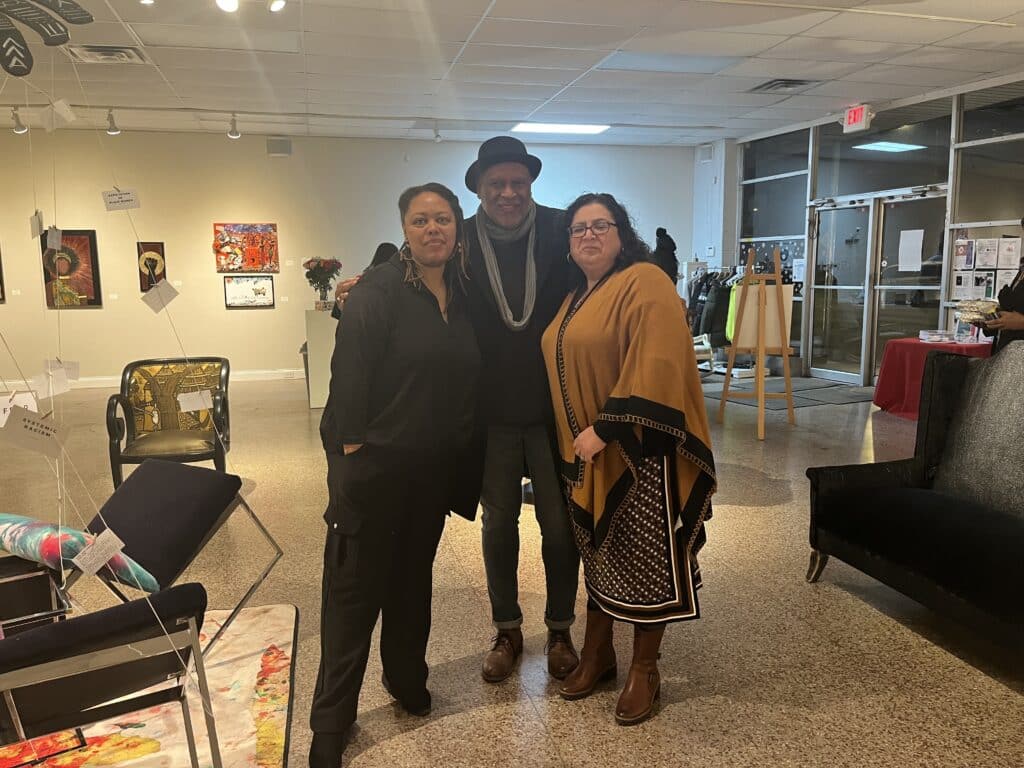
The artists who worked on a Seat at the Table aimed to showcase a variety of Latino experiences that depict a rich culture. Madison Cervantes, created a chair representing the first senate district and notes: “The butterflies I put on my chair represent all of the immigrants within the 1st district. I wanted to use different materials for their symbolic meaning. Latinos, we are everywhere and we know how to use many different materials and we venture out and I just wanted to represent that we are not linear people.” Silvia Morales created a chair for the 23rd congressional district that incorporates items from vendors in her community: “I wanted to include a lot of aspects of our community as hard workers, but also as people, people who need to rest.” Through reflecting on these chairs, both the artists and community members are asked not only to think of the Latino community, but also assets within that community that can be used to build strength.
This year, Jakima hopes to launch another project similar to A Seat at the Table and collaborate with organizations across Chicago. She imagines creating Peace Circles, identifying topics, and addressing current issues to guide upholstery workshops. As seen through both Blooming Out of Trauma and A Seat at the Table, these workshops would provide spaces for artists to work with their communities to explore their histories, identities, and assets.
Transforming Adversity into Activism: Violence Prevention in Garfield Park
Damien Morris, 2020 Chicago Peace Fellow and Chief Program Officer at Breakthrough Ministries, an organization providing comprehensive programs in Garfield Park in Chicago, speaks about his long-standing engagement with one of the organizations’ key programs: violence prevention. Being incarcerated at the age of 17 for a decade provides him a lived experience with the justice system, and equips him with the knowledge and know-how in creating transformational and lasting change towards a more just society.
In this piece, Damien highlights the importance of being involved with Breakthrough Ministries and serving as his platform for helping others get second chances. He emphasizes the high crime rate in East Garfield Park, and discusses his involvement in violence prevention through the Flatlining Violence Inspires Peace program, and reiterates the crucial role of community involvement in violence protection.
A Personal Adversity Transformed into a Community Activism
Damien feels strongly about people deserving second chances in being part of the community. Reflecting on his own experience, he says: “I have lived experience. I was once involved with the justice system at the age of 17. After my release at the age of 27, I got a second chance, I got an opportunity to redeem myself by working with Breakthrough Ministries.” He has been with the organization for more than 15 years now. “What keeps me going is that I know what happens and I know the good results that come with supporting a person.” he adds.
Take me for example, I was incarcerated for ten years, and then I was released. I was in a program, they gave me an internship and after I proved myself they offered me a job- and I never looked back. […] Now I am in a position to give people opportunities for a second chance.
- Damien Morris
Reducing Violence in Garfield Park with Community Involvement
Damien further explains why Garfield Park on the West Side of Chicago needs the resources to create deep, holistic change in the neighborhood in preventing violence: “The crime rate [in Garfield Park] is 55 people per one hundred thousand, and so with this being said the community has been begging for violence prevention efforts, and the Breakthrough became the leading agency on that.”
Violence has touched nearly every person in this area, directly or indirectly, and people like Damien, who is close to the issue are leading social change from the bottom. “Despite having a lived experience, I also made a conscious decision to help with this. Now together with my team, we have identified nine areas within the East Garfield Park that are being charged with increasing the violence in this part.” He elaborates more on a unique program that Breakthrough is implementing called Flatlining Violence Inspires Peace (FLIP).
FLIP leverages the influence of community residents by partnering with young men and women who live in neighborhoods that are at a high risk for violence. These individuals are given a stipend to act as peacekeepers and mediate conflict in their communities: “This program allows me to identify those men and women who are connected to the streets and have a good relationship with the community but also have the mindset that they want to see a better community and reduction of violence.”
In this piece published in the Chicago Tribune, Damien calls for the involvement of the community in violence prevention: “People can help us by simply just showing initiative when they see us out doing work. There’s not solely one answer to solving or reducing violence, so we cannot just wait for the police to reduce the violence. It takes all of us- we all need to get involved and be on the same page. We all need to get engaged consistently.”
“When we are hosting community meetings, come, help, and share your doubts, share your creativity. Help us think outside the box, help us make a greater impact. We cannot do it all ourselves,” he continues, "The community needs to govern themselves."
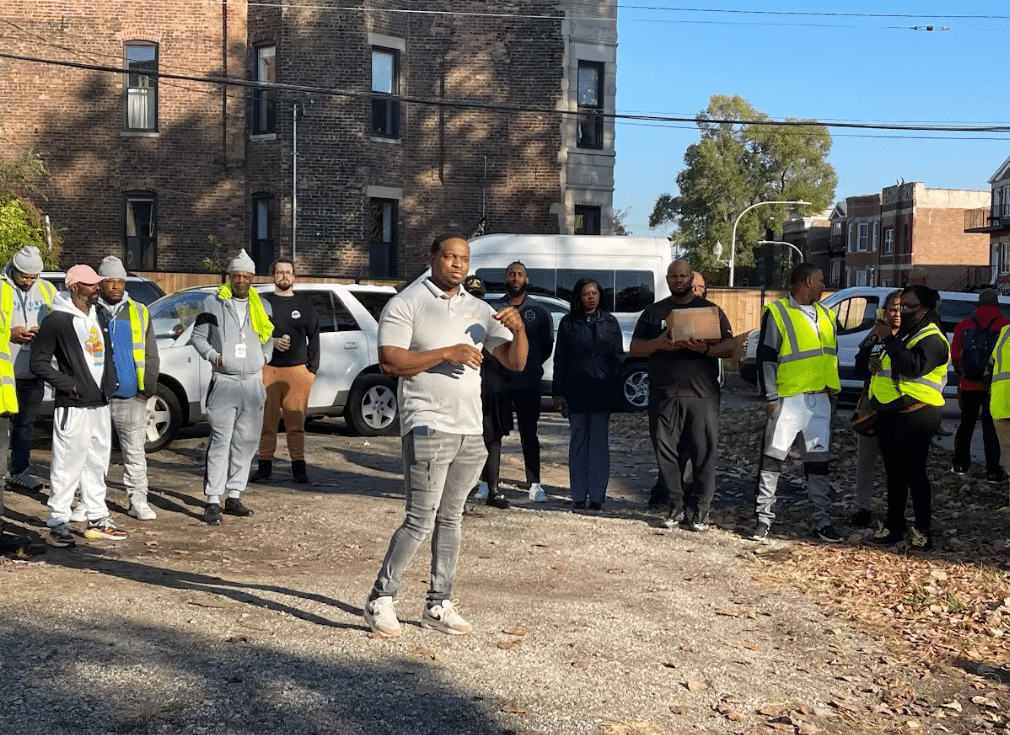
The Value of Community Assets
Damien’s participation in the Chicago Peace Fellowship, in 2020, remains important in his activism. “I was referred to the Goldin Institute and I have seen it as a challenge, I have seen it as a way for me to see outside the box, and to challenge who I am as a leader,” he says.
He learned tremendously from this experience, and Asset Based Community Development (ABCD) and asset mapping stand out. “I gravitated to these two exercises. Indeed, I started a little company due to the impact and learnings from the asset mapping approach. I identified those who are an asset to the community and engaged with them to provide the services we are experts in. I still do that to this day.”
Breakthrough Ministries served more than four hundred people, 48 individuals served with case management services and the percentage of drop in shooting victimizations in East Garfield Park last year was 29%.
You can donate to Breakthrough Ministries here.
Mapping a Community Vision in Sri Lanka
As part of her Goldin Global Fellowship, Sashikala Lakshman, from Sri Lanka, held her Community Visioning Summit in Rawathawatta East, an area just south of the capital Colombo. This gathering was designed to identify and address the prevailing challenges faced by this area collaboratively.
Participating in the 2023 Goldin Global Fellowship made Sashikala, who believes in our collective responsibility to safeguard children's rights, a more skilled community worker. She emphasizes the lessons from the asset mapping exercise under the Fellowship.
Speaking to the Goldin Institute, Sashikala highlighted the importance of the Fellowship lessons and the utilization of the GATHER platform in successfully implementing her event, which drew active participation from a diverse range of stakeholders, totaling approximately 50 attendees representing various categories.

A Sense of a Shared Purpose Among Diverse People
The Community Visioning Summit opened with a comprehensive overview of the Goldin Global Fellowship program and the Community Visioning Summit, elucidating the shared objectives and mission.
“In a spirit of inclusivity and community building, each attendee had the opportunity to introduce themselves, providing insights into their respective roles within society and their contributions to its betterment. This initial interaction fostered a sense of camaraderie and shared purpose among the diverse participants, laying a solid foundation for collaborative discussions and problem-solving throughout the summit.” Sashikala says.
She further elaborated on her goals to harness the assets and talents within her community to address the challenges effectively: “The primary objectives were to engage with community members, identify their most pressing issues, and collaboratively develop a concise three-month proposal for addressing these challenges while simultaneously constructing an asset map of the community.”
The summit was attended by a diverse group of community members including the Divisional Secretary of Moratuwa, Viharadhipathi Thero of the Rawathawatta temple, Moratuwa’s Probation Officer, the Principal of the Roman Catholic School, the Grama Niladari, the Chief Nursing Officer from the MoH Office, teachers and students from the Roman Catholic School, and as well as other community members. Additionally, respected elders from the community and staff at Sarvodaya, community-based development organization in Sri Lanka, contributed their valuable insights and expertise.

Asset Mapping - A Stronger Community Will for Change
Mapping community assets, a skill learned and discussed during the Fellowship weekly roundtables, proved to be a unique value during this event. Sashikala notes: “During the summit, the asset map that had been initially identified was presented, and participants were actively encouraged to contribute by identifying additional assets within their reach. This interactive approach enriched the asset map and sparked lively discussions among attendees.”
She further believes that because of the enthusiastic participation, the asset map and the summit demonstrated a shared commitment to community development and a genuine interest in identifying and leveraging the resources available to create a stronger, more resilient Sarvodaya and Rawathawatta East.
In addition to the initial asset maps identified before the summit, Sashikala shares how participants eagerly enriched the asset map. For instance, she brings valuable insights from crucial Sarvodaya representatives, enriching the asset map with various resources and services. “The manager of Sarvodaya's End Poverty Knowledge Center emphasized the significance of assets like Sarvodaya Central Library, SDGs Academy, End Poverty Knowledge Center, and Sarvodaya Institute of Higher Learning. These institutions were acknowledged for their pivotal roles in providing essential services to the community, fostering education, skill development, and knowledge dissemination.”
Some other additional assets identified after the summit are Vishva Niketan, Suwasetha Child Development Center, Roman Catholic School, Buddhist Temple, Sarvodaya Store, Probation Office, Grama Niladhari Office, and the engagement of community members, volunteers, children, and youth.

Stakeholders Appreciating the Initiative
At the summit, Sarvodaya's Vice President, Neetha Ariyaratne, highlighted the challenges experienced by low-income families and children due to the economic recession, including the alarming issue of parental drug addiction, which poses a significant threat to child safety in East Rawathawatta. She emphasized that Sarvodaya is actively involved in addressing these issues through orphanages and daycare centers and encouraged attendees to provide information regarding children in need of assistance.
The principal of the Roman Catholic school underscored the pivotal role of schools in identifying and addressing local problems, emphasizing that schools serve as microcosms of their communities, with children from diverse backgrounds and age groups. He advocated for securing the future of school children, expressing concern about the pervasive issue of drug-related challenges affecting their lives. Many disciplinary problems have been identified in their school, and the principal thinks that children and parents should be informed about this. He suggested that the parents in the Rawathawatta area should be made aware of these problems through entertainment programs.
Viharadhipathi Thero said that community support in solving these problems is minimal and that there should be more community participation in implementing programs. The members of Sarvodaya particularly pointed out that the involvement of children is significant in finding solutions to community problems because they are the ones who make decisions regarding the future of the country.

Infusing Positive Change Together
Sashikala emphasized the inclusivity of the event and the strength of a collaborative, participatory approach to addressing community issues. “Importantly, the summit was recognized as more than just another program; it was perceived as the starting point for concrete actions to tackle the challenges identified,” she adds.
Based on the reflections and feedback from participants, a network will be promptly established, including all attendees. “This platform will facilitate ongoing communication, ensuring that everyone remains informed about the program's future actions and allowing for continuous progress monitoring. This collaborative approach will be crucial in turning the identified challenges into actionable programs, driving positive change, and creating a brighter, more resilient future for all residents of the Rawathawatta East area.” She leaves us with a message of unity and hope by highlighting that people can enable change together.

Empowering Women Through WhatsApp in Zimbabwe
By Munyaradzi Dzimunwe, Global Fellow from Zimbabwe
Recently, I have been receiving a wave of requests from women and girls from various places in my country, Zimbabwe. Most of the women have heard of or seen me leading different initiatives designed to empower women here. They are requesting mentorship and coaching support from me. Upon deliberating this demand for some time, I decided to create a small pilot program aiming to work with around 20 women. Leveraging my newly acquired community leadership skills from the GATHER program, of which I participated in 2021, and the power of technology through WhatsApp multimedia capabilities, I created a 3-month online mentorship curriculum, entitled 'YPreneur 23'.
Within two weeks of starting, the WhatsApp group attracted 150 members! Women, ranging between 19 years and 63 years, joined through the open invitation link! I was surprised to see this happening. The engagement was remarkable; it indicated to me that empowerment through mentorship and coaching was what most women needed. Equally, it was a proof of concept since I have always had the wish to start an academy for women and girls. Excitedly, I invited my colleagues to join me in coaching the 150 women who joined the online program.
The 3-month curriculum covers topics such as personal development, career guidance, grooming deportment and etiquette, project management, personal branding, and entrepreneurship skills. The sessions happen twice a week, Tuesdays and Thursdays, for about 90 minutes. We use photos, video recordings from their smartphones, voice messages, texts, and file attachments to facilitate learning, exchange, assignments, and reporting. The program uses a mix of both English and the local languages familiar to participants.
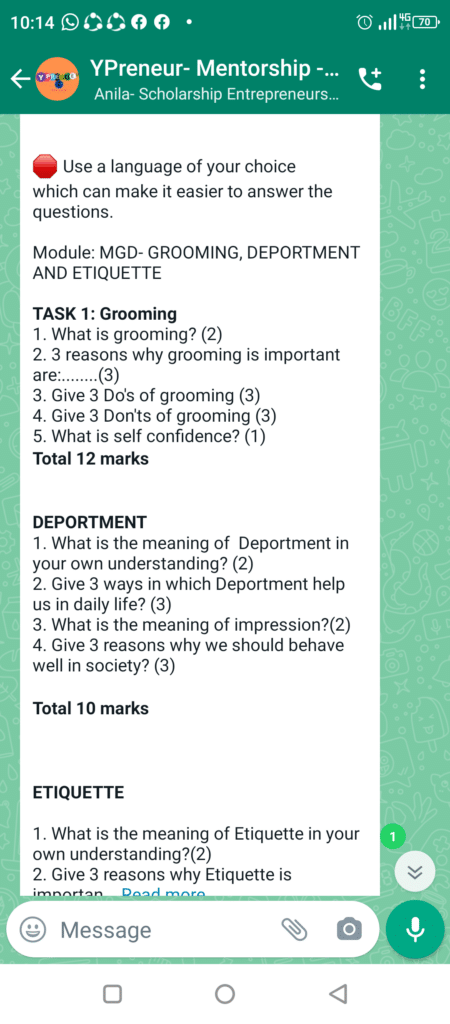
We hope to complete the curriculum for this first pilot project on the 4th of May 2023. If everything goes well, we will celebrate this achievement by awarding participants with certificates of completion. It will be a great moment for us to evaluate, reflect, and plan the road ahead. Based on the assessment of this first cohort, my colleagues and I will figure out the best ways to improve and even formalize the process to align with the vision of creating an academy for women.
It strikes me as a miracle that we managed to get this to work done just with WhatsApp. The challenges faced by participants (i.e., a lack of budget for internet bundles, inaccessibility of platforms such as Zoom and Google hangouts, intermittent internet, and electricity etc), the WhatsApp platform somehow works because participants can tune in when they get internet to read through materials, follow up on voice recordings and complete assignment at their own pace.
I am very pleased to see that the program is changing the lives of girls and women in my country. Below are some feedback and testimonies from some participants which were shared as voice messages on our WhatsApp platform:
"I have learned to leave my comfort zone, to be out there and connect with people. I have learned to push myself to see my needs. I have no time to be on my phone the whole day like be on social media or Facebook. Now I am always on my books or reading something, and that is new I have learned it from this program. I’m not the reading type; I didn’t know I had it within me to be the reading type. So now I’m learning, I’m getting there." - workshop participant
"With this personal development program I have managed to improve one crucial area, and I think that is the stepping stone for the rest of my development goals. I managed to step out of my comfort zone, I was one person who was so afraid of failure, that I was in my comfort zone all the time and I wasn’t able to expand myself. Through this program and the motivations and teachings I got from this group I managed to volunteer for a charity organization called the Foundation of Hope. I did this because I’ve always been a person who wants to uplift her community." - workshop participant
In other updates, I engaged my students to write essays reflecting on the International Women’s Month celebrations. This exercise took place on the 29th of March and involved a series of mentorship where 12 girls were matched and paired with mentors for career guidance and counseling. I was also invited to speak at the gathering of Women Enterprise International (WEI). In my speech, I encouraged the beneficiaries to learn, work together, and combine resources to achieve sustainable projects. The WEI supports women entrepreneurs with business coaching and mentorship.
I am also proud to report that three women from the project ‘YPreneur 23’ got an opportunity for free digital marketing training. The economic empowerment program provides free coaching and mentorship to uplift women out of poverty.
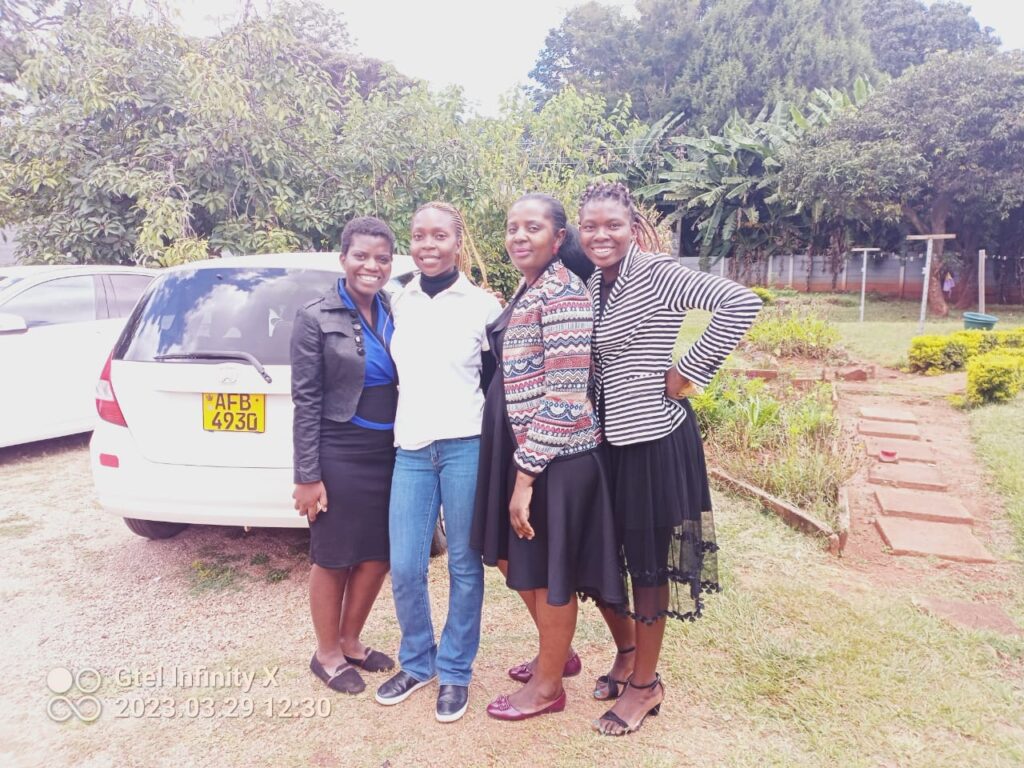
Promoting Justice for Detainees in Liberia
By John Kamma, Global Fellow from Liberia
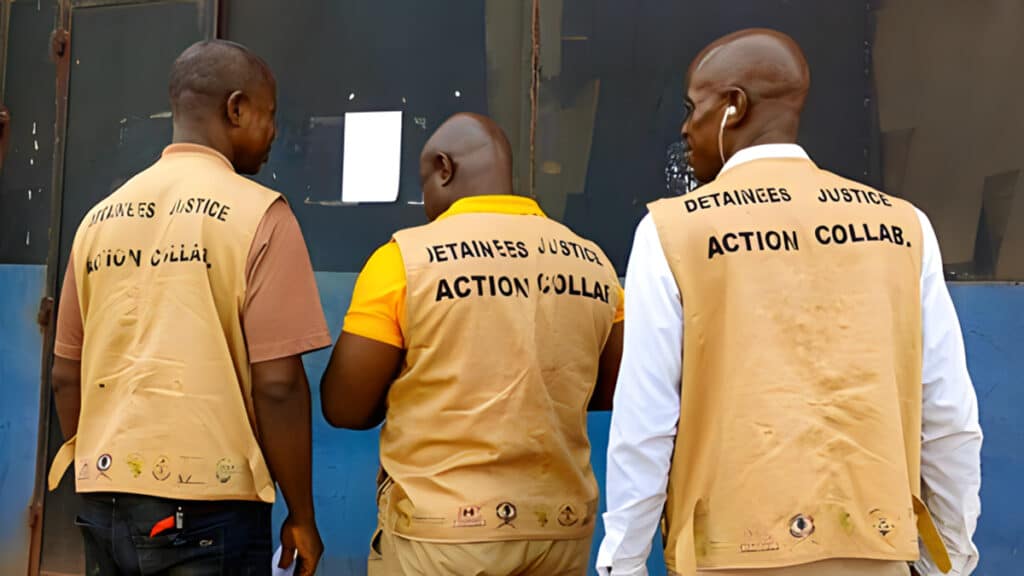
It is with great joy that I announce that I have won a €10,000 Euro grant from Catalyst 2030 to pilot a project focused on detainees in Liberia. I have already secured a permit from the Ministry of Justice to visit prisons and start working with detainees to review their cases. Together, with my local learning partners and the advocates, we will identify detainees whose rights have been violated and provide legal support to facilitate access to those rights.
“Today, we visited the Monrovia Central Prison and interacted with Prison authorities who were very pleased about our intervention to bring justice to the life of pre-trial detainees. This is a step toward our data collection process that will be used to advance evidence-based advocacy, demanding due process of law for pre-trial detainees in a competent court of jurisdiction.”—John Kamma
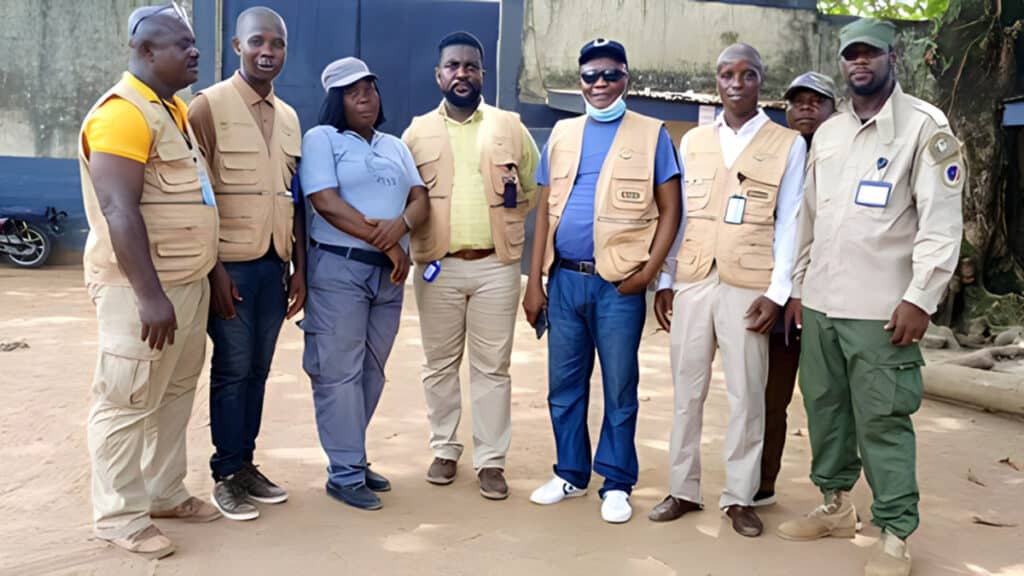
The project, Detainees Justice Action (DJA), seeks to; promote access to justice among detainees, support their integration back into the community, and provide sustained mental health support. We just started in Monrovia but the permit from the Ministry of Justice allows our project to scale across the country. The three-month pilot phase is now focusing on the identification of detainees whose legal rights were not met. Afterwards, we hope to start addressing the issues in court with support from the advocates.
Between June and December 2022, I was engaged in an extensive training program led by the African Civic Engagement Academy (ACEA). During that period, I had an opportunity to learn with over 2,000 participants coming from across the African continent. I applied for this opportunity because I understand that our work in the community requires constant learning, research, and networking. Throughout the program, I was exposed to knowledge about basic principles of civic engagement, inclusion, media management, non-profit management, and program design.
The whole program was conducted online, featuring multimedia content designed to expose us to different theories. I also learned a lot about practical applications from other participants. We exchanged experiences based on our unique actions in our respective communities. I was particularly impressed with the lessons surrounding the need for partnerships and collaborations. We learned that extending partnerships with the government and other civil Society Organizations can increase our chances of success in tackling the issues we face.
“Ensuring that the government does not see you as an obstacle is key to improving relationships, obtaining support, and achieving collective goals. Sometimes the government already possesses important information that is necessary for our work to be successful.” — John Kamma
Last year I was training at the African Civic Engagement Academy and whilst there I submitted a Civic Engagement Action plan detailing the work of Detainees Justice Action. This led to my recent invitation to attend the 2023 ACEA Summit which takes place tentatively on March 17-19 in Nairobi. I am so glad for this opportunity and I’m looking forward to it.
“The reviewers at ACEA selected me for the Summit because they were impressed with the quality of my Civic Engagement Action Plan and with my participation in the ACEA training last year.” —John Kamma
African women are brave, and there cannot be just one day to celebrate them
By Diana Alaroker, Global Fellow from Uganda
In Northern Uganda, where I grew up, educating a young girl like myself was not a priority. My culture is patrilineal, so my worth would have been negligible in many other families. Indeed, the dropout rate for girls in my region is 78% for primary school. Girls are a currency of exchange, many of us groomed to be housewives from the age of ten. And at the age of seventeen, we are considered ready for marriage. As early as 5am, while it is still dark, very quiet and cold outside, the day has begun for an African woman. Her tasks are largely domestic, including housekeeping, child rearing, fetching water, cooking and tending to the community’s needs. Women in Uganda work two thirds of the total labour hours and produce 70 percent of the nation’s food, yet earn only 10 percent of its income and own less than one percent of its property.
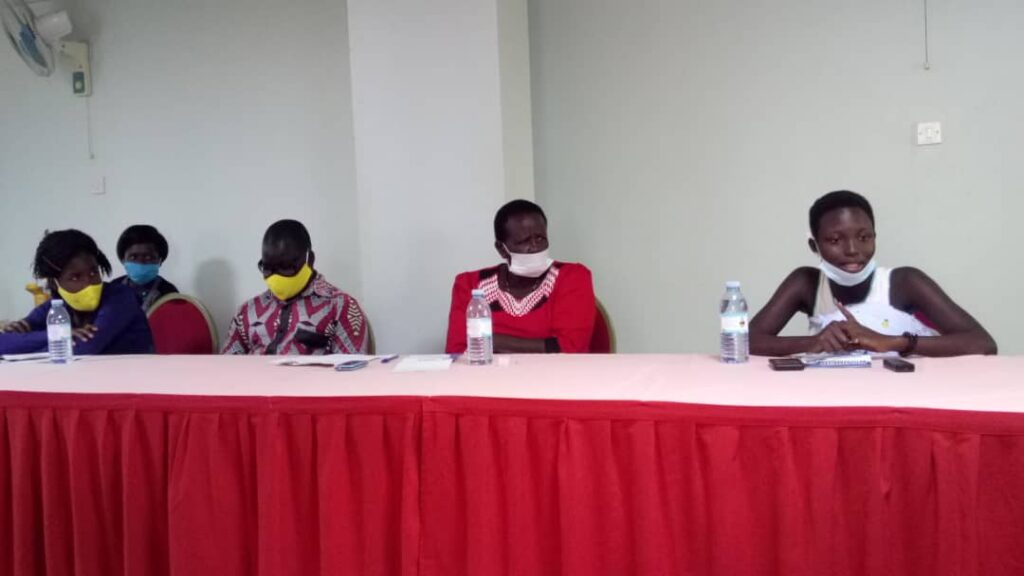
Many African women awake to responsibilities which are overwhelming and challenging at times, responsibilities they have to face as and when they come. The countless sacrifices that they make just to see their children and spouses happy can never be paid back; they are priceless.
Polygamy, which is a norm in the Acholi culture, makes the situation worse, which exacerbated after the conflict in Northern Uganda. Men often elope with other women with whom they feel they are “better off,” leaving their wives with the responsibility of raising the children and providing for the family. For the woman who has been deserted, playing the role of both parents in the lives of their children is quite challenging and hectic.
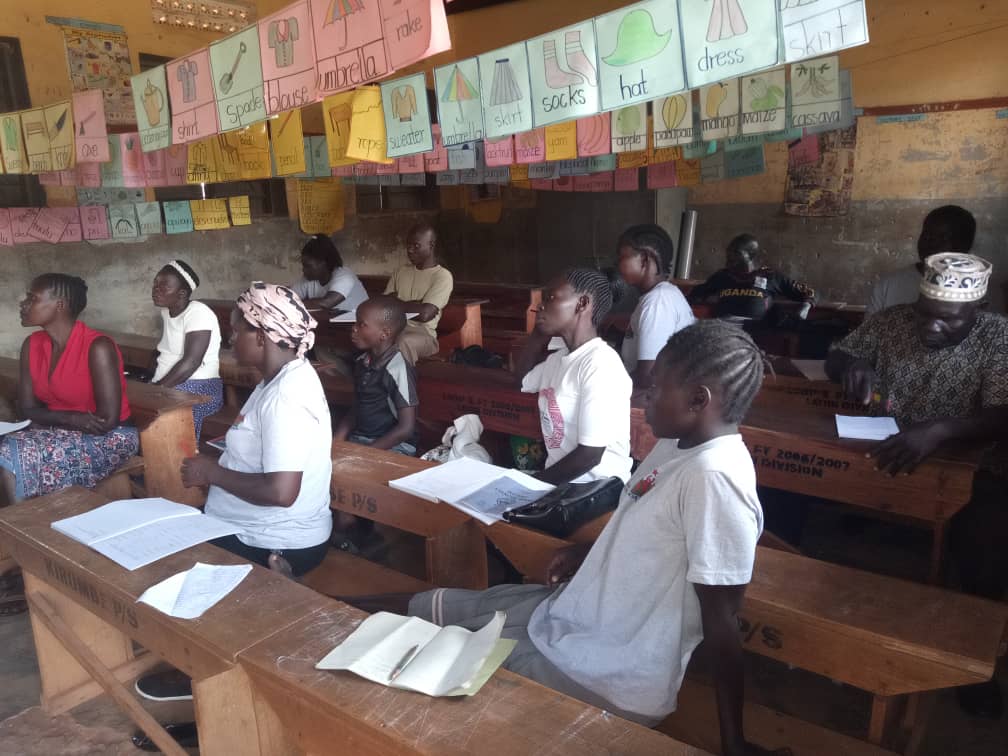
With little or no education, they are unable to get employment in any formal sector, so most of them opt for small businesses, which usually generate little profit, but give them time to attend to their responsibilities at home. And with these small profits, they are able to send their children to school to attain education which they themselves were unable to get.
African women are brave, and there cannot be just one day to celebrate them. Every day should be a day where we respect the dignity of women.
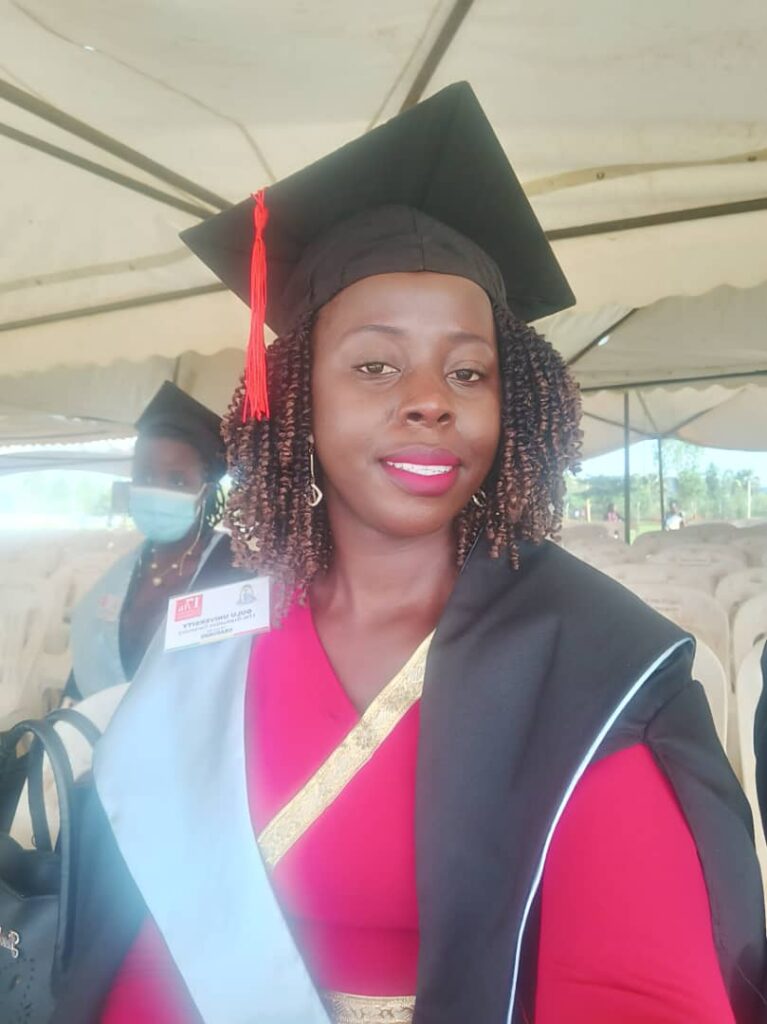
Black Star Project Showcases Careers in Sports at the NBA All-Star Weekend
By: Zeki Salah, Communications Associate
The Black Star Project recently partnered with BDM Sports & Education Project to send Chicago students to Salt Lake City to learn about careers in sports at the NBA All-Star Weekend from February 17-19. This trip marked the third year that the Black Star Project has sent young people to the NBA All-Star Weekend to provide them with an inside look at the professional world of basketball and with a fun weekend of basketball events.
Brian McCoy, or Coach Q, began the BDM Sports & Education Project in 2014 with the goal of making a positive difference on the South Side after repeatedly hearing about violence on the news. “What I know is that a young person can’t shoot a gun and a ball at the same time. So I went to one of the roughest spots in Chicago and said, ‘Hey, I want to do a free sports camp for young kids’ [...] I think the kids I spoke to felt my sincerity because I gave them a clipboard and when I returned later the clipboard was filled on both sides.” Coach Q then went to his contacts in community activism and education, including Gloria Smith, a 2020 Chicago Peace Fellow, and approached them about starting a youth sports camp, with a focus on the business side of sports. He held his first camp in Englewood in 2014 and has continued to hold basketball camps, baseball camps, and most recently an introduction to golf.
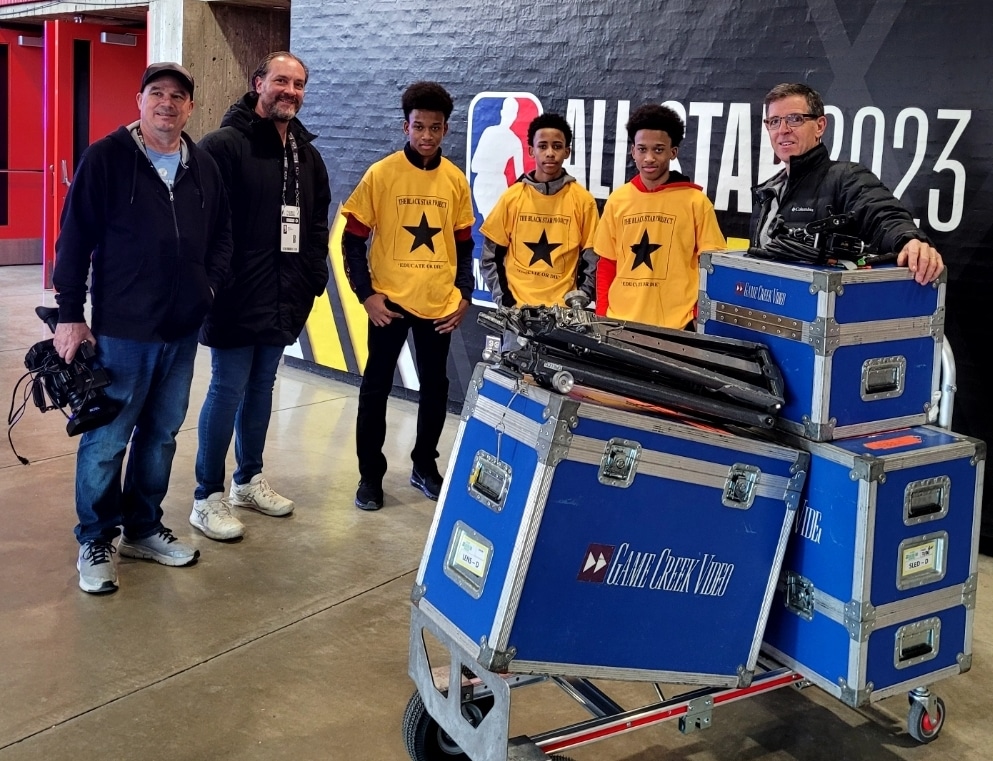
The trips to NBA All-Star Weekends have been held by Coach Q and the Black Star Project for the last three years. The trips aim to combine an introduction to the business of sports with a fun weekend for teens on the South Side. The trips place a focus on academics and include essay contests before and after the trip. In prior years, the Black Star project has chosen participants for the trips based on essays that they write on their interest in a career in sports. This year, an essay contest is being held for a cash prize following the trip. Coach Q and the Black Star Project also provide a ten week business of sports curriculum leading up to the trip, which allows the young people to learn about the different professions within the sports industry before they go on to meet them at events such as the All-Star Weekend. Speaking to the idea of synthesizing the business aspect and sports aspect of the trip, Coach Q said:
The average young person wants to be the next Lebron James, but in actuality, the probability is really slim [...] So, what I try to do is let them know that it’s okay to have dreams, but let them know the reality of the situation and ask: ‘What are you really looking for?’. By taking them to the game you can show them both sides, the excitement, but also the thousands of people making that game happen. There’s a camera man, a sports physician, a sports attorney, an agent, a sports statistician, a kinesiologist; there’s so many different careers involved that no one ever talks about.
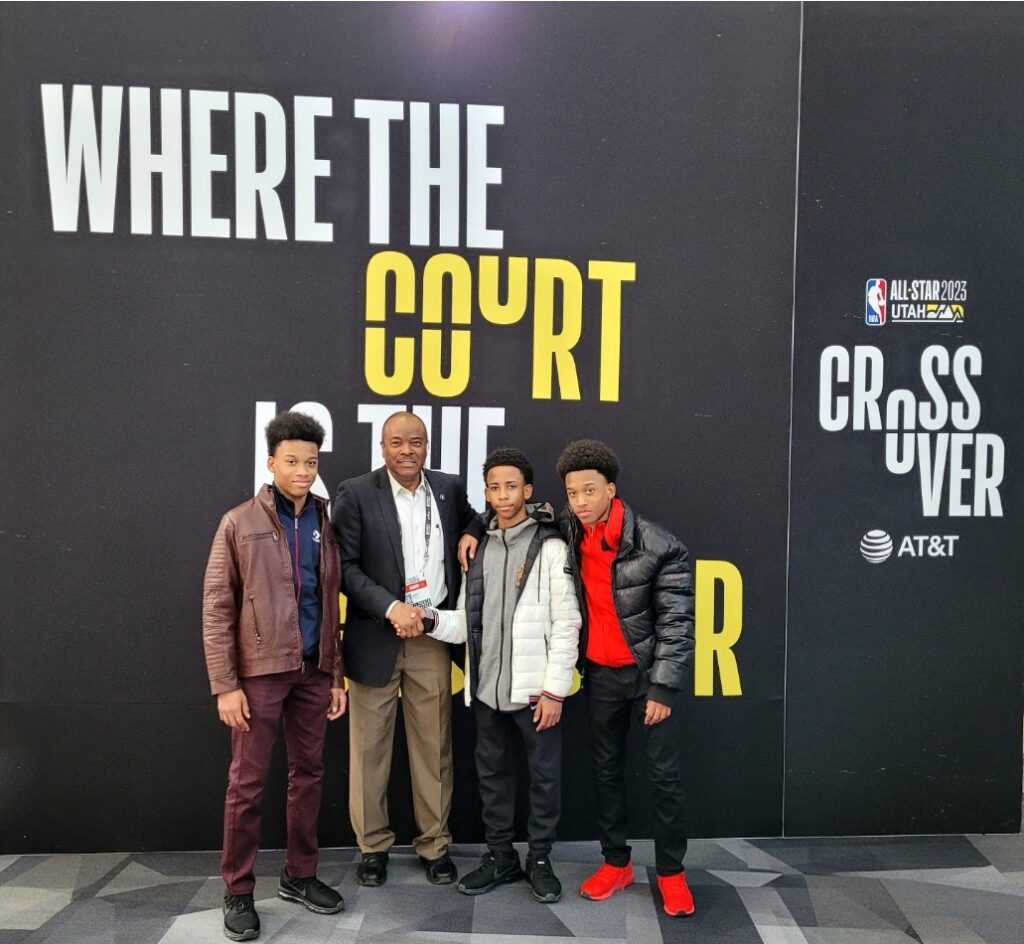
The Black Star Project took the lead on programming and fundraising for the All-Star weekend, while Coach Q accompanied the young people and introduced them to professionals in the sports business. The first event they attended was the HBCU Classic, an annual basketball game between two Historically Black Colleges and Universities (HBCUs) that was started by the NBA to show their commitment towards social justice in response to boycotts during the Black Lives Matter movement. The young people on the trip also participated in an HBCU college fair and learned about the NBA’s HBCU Fellowship program, which aims to provide career development opportunities in the business of basketball for undergraduate and graduate students from HBCUs. After the fair, the young people were also able to meet and greet with sports business professionals.
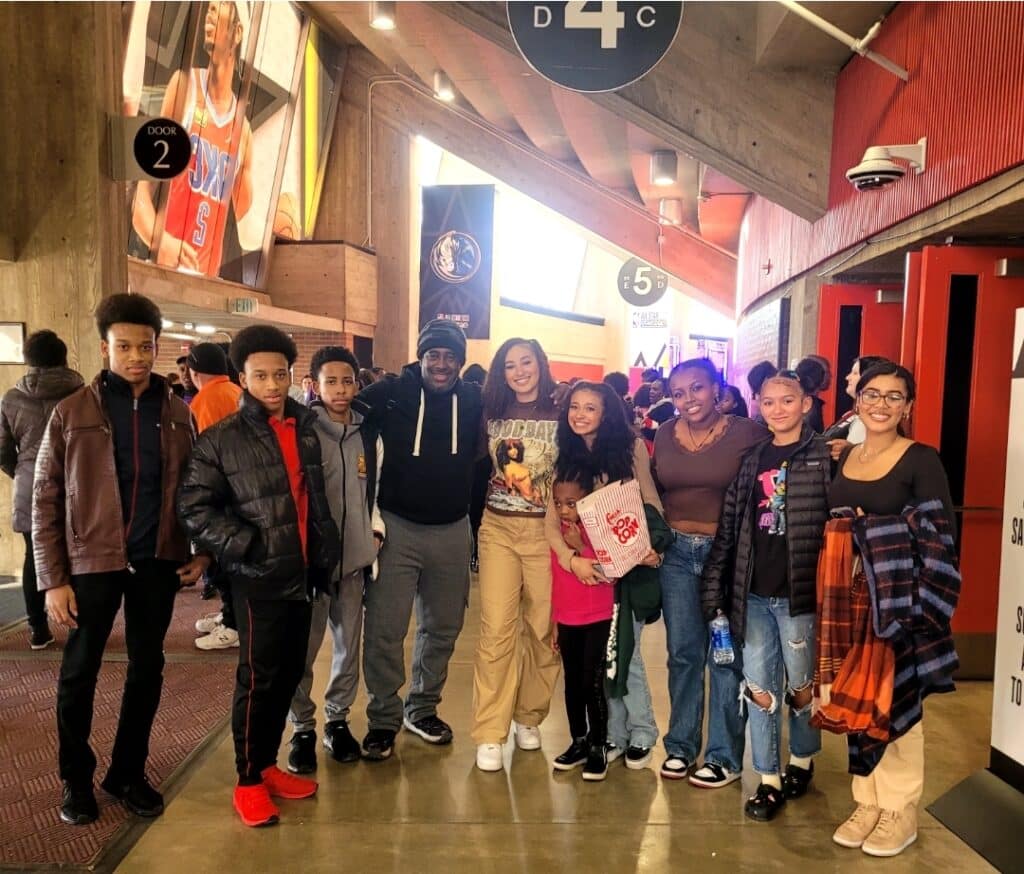
Throughout the weekend, programming combined both opportunities for the young people to have fun and enjoy basketball programming and an inside look into potential careers. The young people on the trip were able to have dinner with Rev. Jesse Jackson, who attended the University of Illinois on a football scholarship. He provided insight as to how entering the business of sports could allow an individual to transition to other careers, such as career as a minister and civil right leader. There was also a more leisurely section of the trip where the young people attended the NBA Crossover, which is a multi-day interactive fan event that brings basketball culture to the forefront, featuring player appearances, live performances, art, and music. Combining both business and pleasure helped the young people think about their futures in a fun and energetic setting and provided them with a one of a kind opportunity.
Coach Q and the Black Star project aim to continue to hold trips to NBA All-Star Weekends for young adults on the South Side. They hope to not only hold trips to the NBA All-Star games, but also to the WNBA All-Star games so that young women can get involved as well. The next WNBA All-Star game will be held in Las Vegas in July. You can support the Black Star Project and their efforts to send students to these games to learn about the business of sports here.
BDM Sports & Education Project's (Powered by the Black Star Project) 4th Annual Youth Business of Sports Essay Contest
Following the trip to Salt Lake City, BDM Sports and Education Project held an essay contest for high school students with the following prompt: "The average NBA playing career is about 5 years, how should players maximize their opportunities for personal growth and professional development, during their time playing in the league, while also preparing for when their NBA playing career comes to an end... Life Beyond the ball?"
Winners of the contest include:
1st Place Winner ($1,000): Brandon Williams-Orr, Providence St Mel HS
2nd Place Winner ($500): Aaron Williams-Orr, Providence St Mel HS
3rd Place Winners (Tied) ($250): Laylah Richmond, Bolingbrook HS and Antonio Scott, Little Black Pearl HS
A Look Back on 2022: a year of growth and strengthened solidarity around the globe
By Jassi K. Sandhar, Global Research Fellow
As we wind down the end of another year, I am amazed at how much we have achieved within our network and the strides we have made, both as individuals and as a collective. Our global network and partners continue to accelerate their efforts to attend to the most urgent and pressing needs of their communities. We witnessed increased levels of solidarity, more calls for positive action, strengthened collaborations and shared leadership. We end this year with 150 alumni (representing 40 countries) who have graduated from our Fellows Program and are now part of our wider network.
We have compiled a month-by-month timeline of the achievements of our grassroots leaders below. Despite some challenging times, our network continue to respond with compassion, empathy, and commitment to social justice. We end the year by thanking our dedicated supporters whose commitment made many of this year’s successes possible. We look forward to your continued support for community-driven social change in 2023!
January
We commemorated the 12th anniversary of the Haiti earthquake (which had a devastating and lasting impact on the country), by sharing an update on the current situation and launching our “Global Solidarity with Haiti campaign” to support our partners Daniel Tillias and Malya Villard-Appolon, who are on the frontlines responding to those most in need.
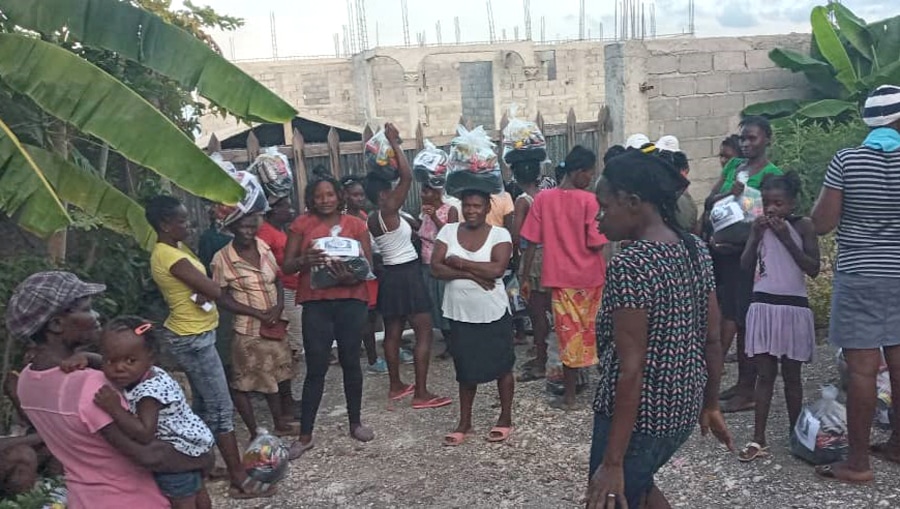
Our alumni in Liberia, Jennifer Henshaw, and her organization LEGAL which works to support the LGBT communities in the country, celebrated their 10th anniversary. Jennifer provides a reflection on their 10-year journey, including their long-standing achievements and ongoing challenges.
January was also a month of collaboration between our global partners. Our partners in the Philippines, Andy Alegre and Susana Salvador-Anayatin, joined forces to deliver urgent humanitarian relief to families following Typhoon Odette in the Philippines. Our 2021 Global Fellows Mathias Ngong Njoya (from Cameroon) and Gopal Iyer (from the UK) also collaborated to host a two-day workshop which brought together 30 youth from 15 countries in Africa and Asia. The workshop was designed to help and guide youth on professional development planning.
February
This month, our 2021 Global Fellows provided an update on their collective campaign; 24 grassroots leaders created a joint fundraising campaign to raise money to support their continued social change projects in their countries. Collectively they raised $12,000. John Kamma, 2021 Global Fellow from Liberia, used those funds to initiate a community clean-up day in Glass Factory community (which is an overpopulated but underserved community).
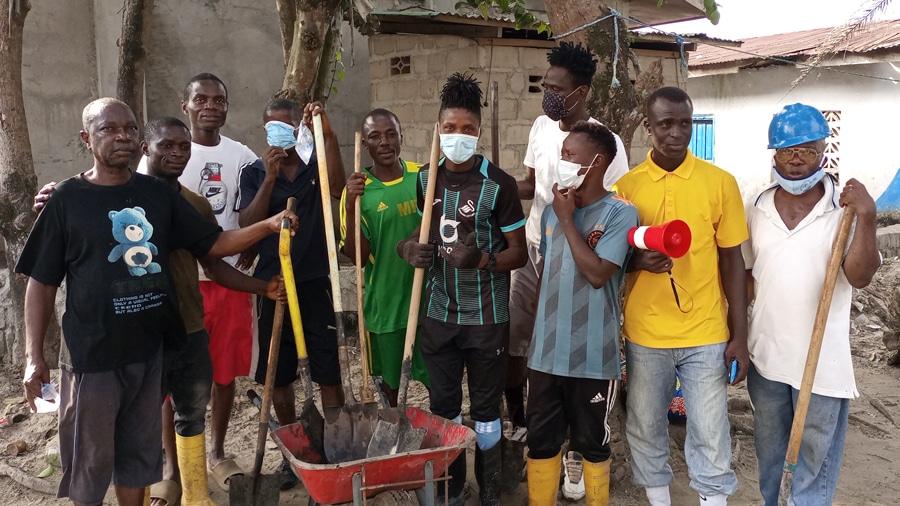
This month, the Chicago Peace Fellows Mutual Aid Collaborative also held a press conference on the anniversary of the assassination of Malcolm X to amplify the themes of their open letter, A Pathway to Anti-Racist Philanthropy.
2021 Global Fellow from The Philippines, Andy Alegre, commemorated International Day of Prayer and Awareness Against Human Trafficking by organizing an online prayer session together with churches and various organizations using a special vigil of prayer specific to this event. This month, Chicago Peace Fellow Jamila Trimuel’s organization also hosted their annual LOV Day, a day dedicated to “show love to our Black girls!”.
March
We welcomed our 2022 Chicago Peace Fellows! 14 grassroots leaders representing 14 different communities across Chicago joined the Fellows program to learn, share, and collaborate together as a Community of Practice.
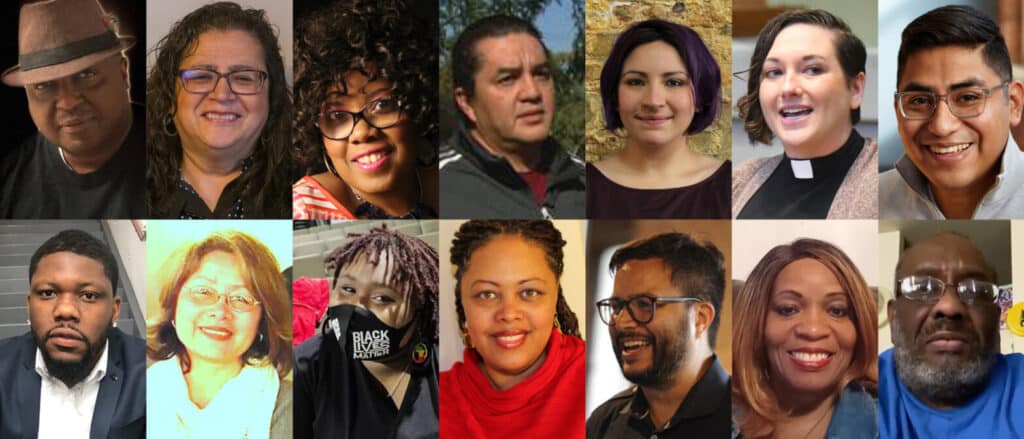
Our 2021 graduates of the Chicago Peace Fellows Program also organized and enjoyed a retreat, to collaboratively focus on rest, restoration and reflection in beautiful surroundings and to strengthen the bonds between them.
We also saw collaborations between DePaul University (Chicago) and Global Fellow Berry Behr (South Africa) which helped document oral history testimonies to capture the interfaith efforts from leaders on the front lines of ending apartheid.
April
Goldin Global Fellow Munyaradzi Dzimunwe from Zimbabwe partnered with She Trades to provide training for women entrepreneurs in the country to help them sell their products on international markets.
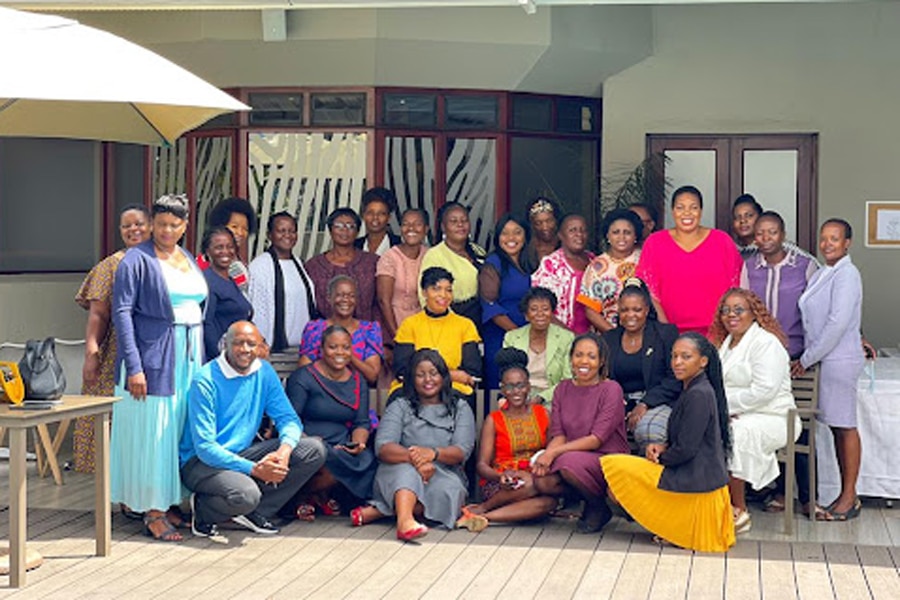
Goldin Global Fellow Nicholas Songora Odoll also provided an update on the critical work of the Manyatta Youth Entertainment (MAYE) in the coastal counties of Kenya to promote social accountability, civic education, and social justice using creative arts. Chicago Peace Fellow, Annette Kelly, also helped host a series of workshops on Violence Prevention in Chicago through her work with the Chicagoland Vaccine Partnership (CVP) in the communities hardest hit by COVID and violence.
The 2022 Chicago Peace Fellows also met for the first time to begin their Fellows Program; the launch brought together a powerful community of activists, artists, social workers, and community leaders representing 14 community areas on the South and West sides of Chicago.
May
Chicago Peace Fellows provided 300 Mother's Day bouquets to mothers who have lost their children to violence in Chicago, bringing comfort to families impacted by gun violence and raising support for peace building projects in Chicago to prevent these tragedies in the future.
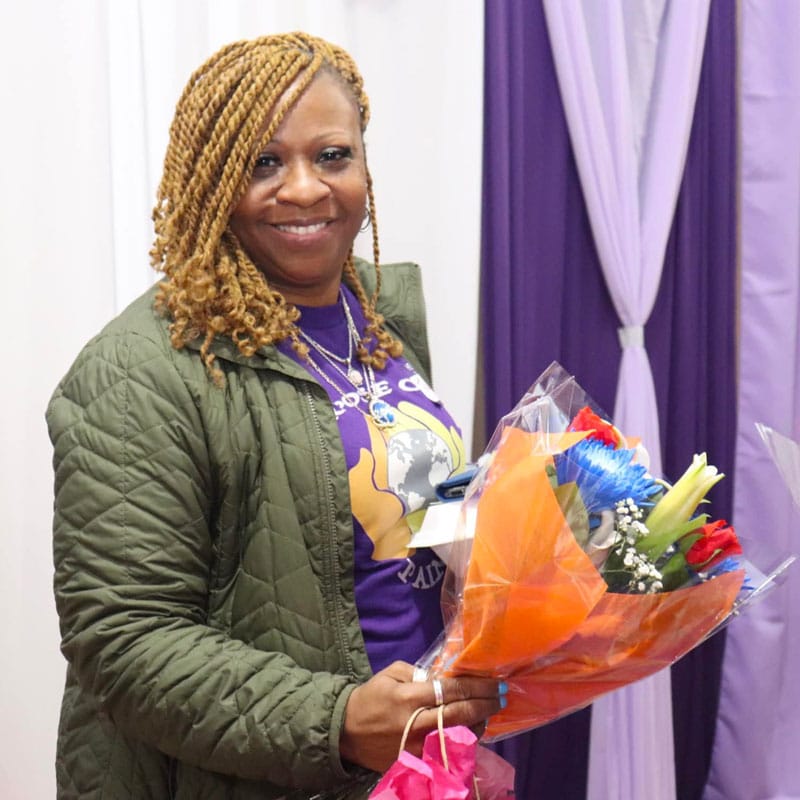
2018 Goldin Global Fellow Cynthia Luvlee shares an inspiring update from Shyne San Diego, sharing the principles that powered the exponential growth of the Shyne Survivor Business Network™ which recently enrolled its 50th survivor entrepreneur!
We also received an update from Global Fellow from Liberia, John Kamma, who worked in collaboration with Catalyst 2030 and his team to mobilize his community to improve health and sanitation and hosted a conversation on narrowing the "justice gap" in the Glass Factory neighborhood.
Mahdar Tahir, Goldin Global Fellow from Malaysia and founder of the Crescent Collective, shared his insights as a panellist for a discussion on religious freedom for which he spoke about the role of religious leaders in building social harmony.
June
In June we welcomed 14 grassroots leaders from around the world onto our 2022 Global Fellows Program! This is the third cohort embarking on the four-month program, where Fellows worked and learnt together as a Community of Practice.

The Chicago Peace Fellows Mutual Aid Collaborative held the Second Annual Concert for Peace at the Hatchery on June 4th, celebrating the artistic accomplishments of their communities and a shared commitment to improving their neighborhoods. The Mutual Aid Collaborative also worked to address an increased demand for blood from Black and Brown donors through holding the #OurBloodMatters blood drive as part of the ongoing project called The Safety Net.
Chicago Peace Fellows hosted a conversation at the Firehouse Community Arts Center on June 3 2022 to discuss community safety and crime data with the University of Chicago Crime Lab as part of the Mutual Aid Collaborative’s Civic Leaders series. This month, Chicago Peace Fellow Pilar Audain also partnered with theater company Collaboration to design and host Moonset Sunrise, a theatrical experience rooted in healing, self-care and collective growth through song, storytelling, dance and ritual.
To solidify and spread the benefits of the peace agreement in the Southern Philippines, Global Fellow Lo Ivan promotes the need to lean into the indigenous culture of volunteerism, known locally as "bayanihan", as a peace multiplier that shapes the Bangsamoro youth as proactive agents of peace, development, and social transformation.
July
In July we launched our first ever Global Fellows Program in Spanish! We welcomed 17 grassroots leaders and activists onto the program, who undertook the curriculum and engaged in the journey together in Spanish. These Fellows live and work in Argentina, Bolivia, Chile, Colombia, Haiti, Mexico, Spain, the United States and Venezuela.
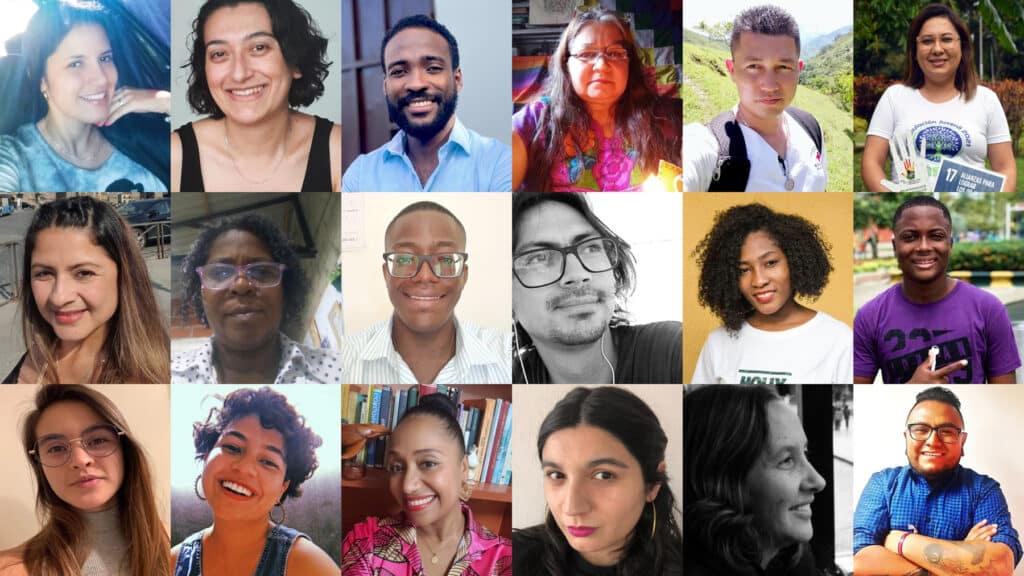
Chicago Peace Fellows Mutual Aid Collaborative hosted a Civic Partner Series conversation with University of Chicago Medicine Violence Recovery Team to learn about a unique public health model of violence interruption. And Global Fellow from Detroit, David Metler, provides insights into Swingset Activism and the idea of social justice education inspired by childhood. He proposes that we have much to learn from children who can help us integrate our activism into our lives and embrace the elements of playfulness, joyfulness, loving-kindness, presence, creativity, and our capacity to re-imagine what is possible.
August
The Chicago Peace Fellows Mutual Aid Collaborative this month carried out two activities. They launched the Safety + Cycling Team to tackle violence which occurs during road and traffic accidents, by providing bike helmets and safety tips at community events.
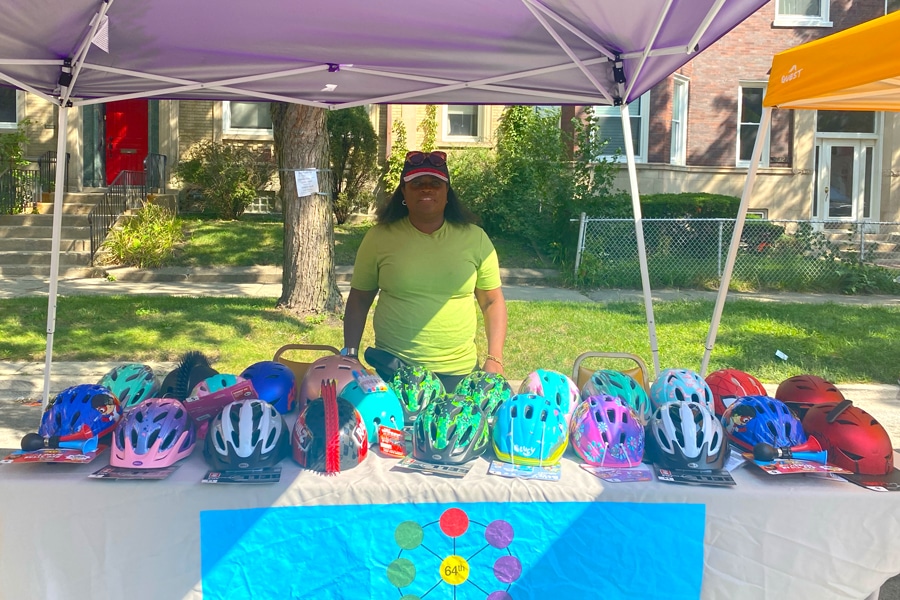
The Mutual Aid Collaborative also hosted a conversation with Dr. Andrew Papachristos to build connections and learn how the science of social networks can be used to understand and target support to people at the highest risk of becoming a victim of gun violence.
2019 Chicago Peace Fellow, Pastor Robert Biekman, piloted a Community of Practice utilizing the GATHER Platform to foster peer-to-peer learning amongst newly ordained pastors with the Evangelical Lutheran Church of America (ELCA). And Global Fellow from Argentina Diana Rocio Gomez Torres, explored the emergence of social movements across South America and bring visibility to the history and memory of these strategies of practical and symbolic resistance.
September
In September, our Fellows around the world embarked on several peacebuilding projects in honor of International Day of Peace 2022. These activities included: The launch of an apprenticeship program for Children Born of War in Uganda, using soccer to promote peace and reconciliation in Colombia, creating a new generation of youth leaders working on peacebuilding in Israel, Freestyling for social change in Colombia, and Peace Day activities from three Global Fellows in South America.
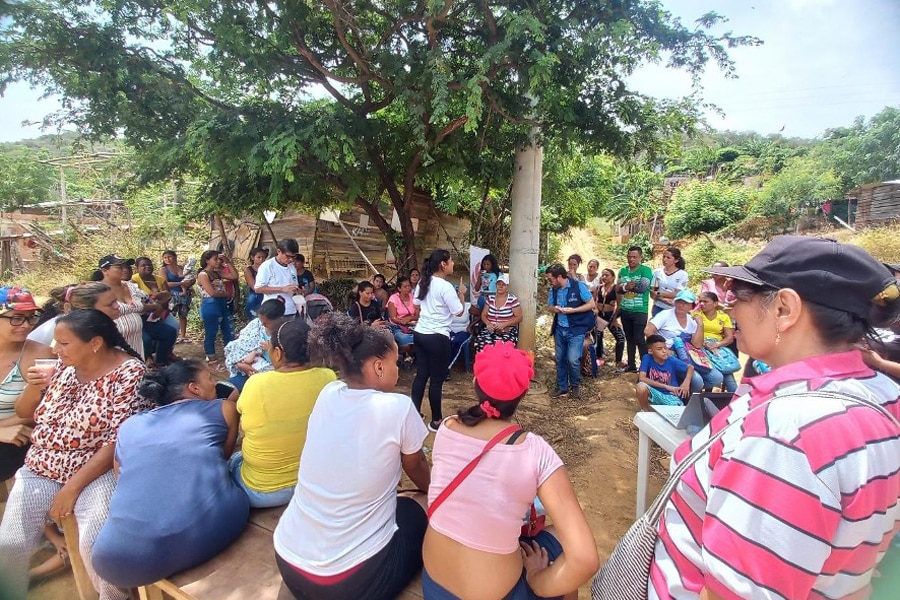
This month we also saw the graduation of the 2022 Chicago Peace Fellows! After embarking on a five-month learning and sharing journey together, their achievements were celebrated at the Chicago History Museum.
October
This month the Goldin Institute turned 20! For the past two decades the Goldin Institute has adopted an approach which is grassroots-led and embedded in kindness, compassion and learning, from everyone but most especially those closest to the issues. We promote the voices of those excluded voices who often have the most at stake in making progress and ensure that they have leadership roles in every social change movement. Which is why it is extremely exciting to celebrate 20 years of the Goldin Institute.
The Chicago Peace Fellows Mutual Aid Collaborative also launched Generation NOW, an idea conceived by Messiah Equiano, a 2021 Chicago Peace Fellow, which will provide opportunities for young people to write and produce a teen talk show addressing everyday issues that teenagers face. We also celebrated the Chicago Day of the Girl with Chicago Peace Fellow La’Keisha Gray-Sewell’s organization (Girls Like Me, Inc) hosting an event to both celebrate Black girls in the city and ensure their sense of belonging.
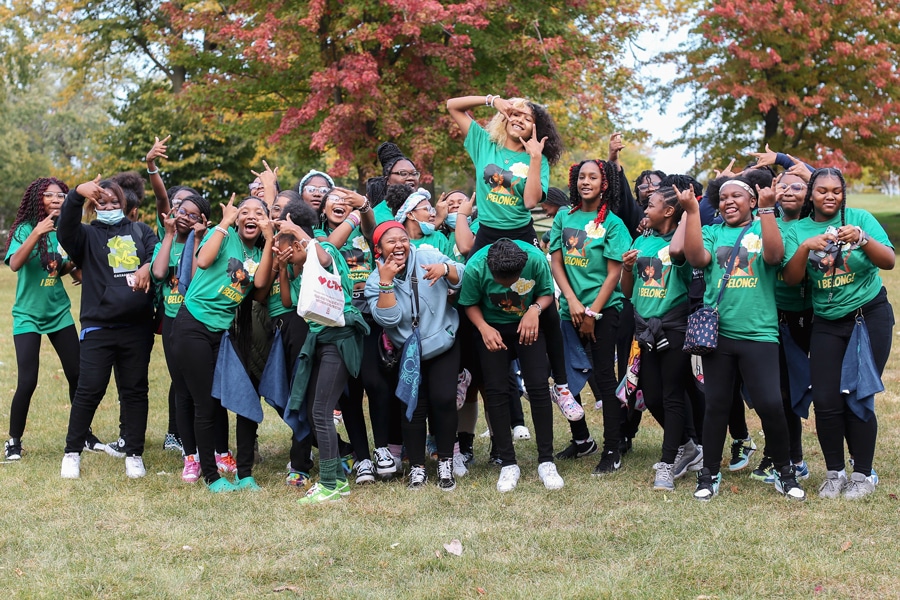
The first annual Sukkah Design Festival was also held this month, on October 9-16, showcasing North Lawndale’s Jewish history and providing social services to the community. Reshorna Fitzpatrick, 2019 Chicago Peace Fellow and Executive Pastor of the Stone Temple Baptist Church, was a member of the organizing committee, which included both community-based organizations and design firms.
November
Our 2022 Global Fellows (English-language cohort) graduated from the Gather program! At the graduation ceremony on 4th November, the 2022 Fellows demonstrated their achievements and shared their aspirations, recognizing how much stronger they now are together.
Global Fellow Oluchi Uzodimma from Nigeria also provided an update on the devastating impact of the recent flooding in Nigeria which has displaced more than 2 million people and damaged over 200,000 homes.
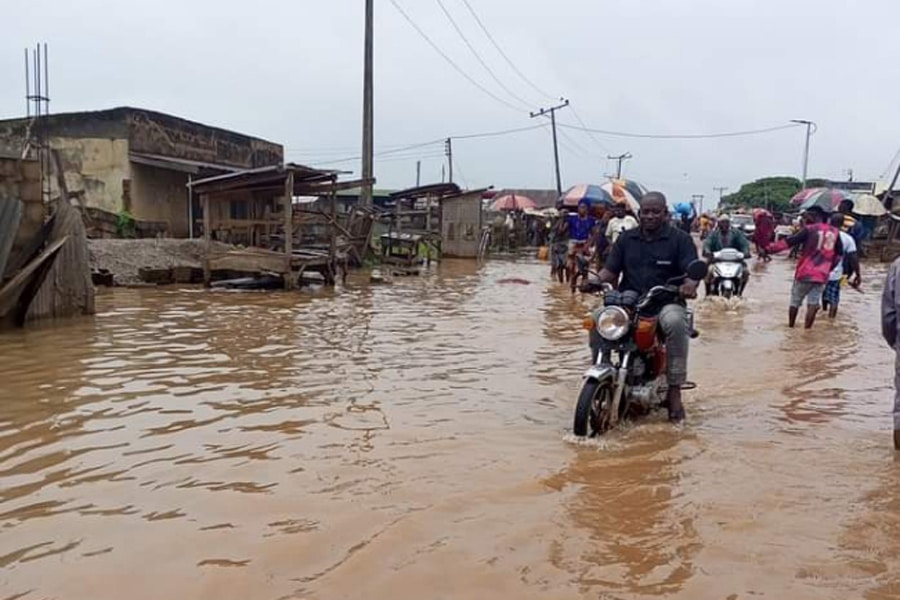
December
As we wind down to conclude the year, we were honoured to celebrate the achievements of the first Spanish-speaking cohort at their graduation ceremony on December 10th. The ceremony included performances in the form of song, freestyling, music, and poetry and reflected on what the Fellows had achieved, individually and collectively.
We remain humbled and honoured by the achievements of our global network of Fellows and we have much to be thankful for, especially the support of our global network of friends and colleagues. We would like to give a special thanks to all our sponsors and supporters for ensuring our leaders were able to continue their much-needed activities throughout the year.

